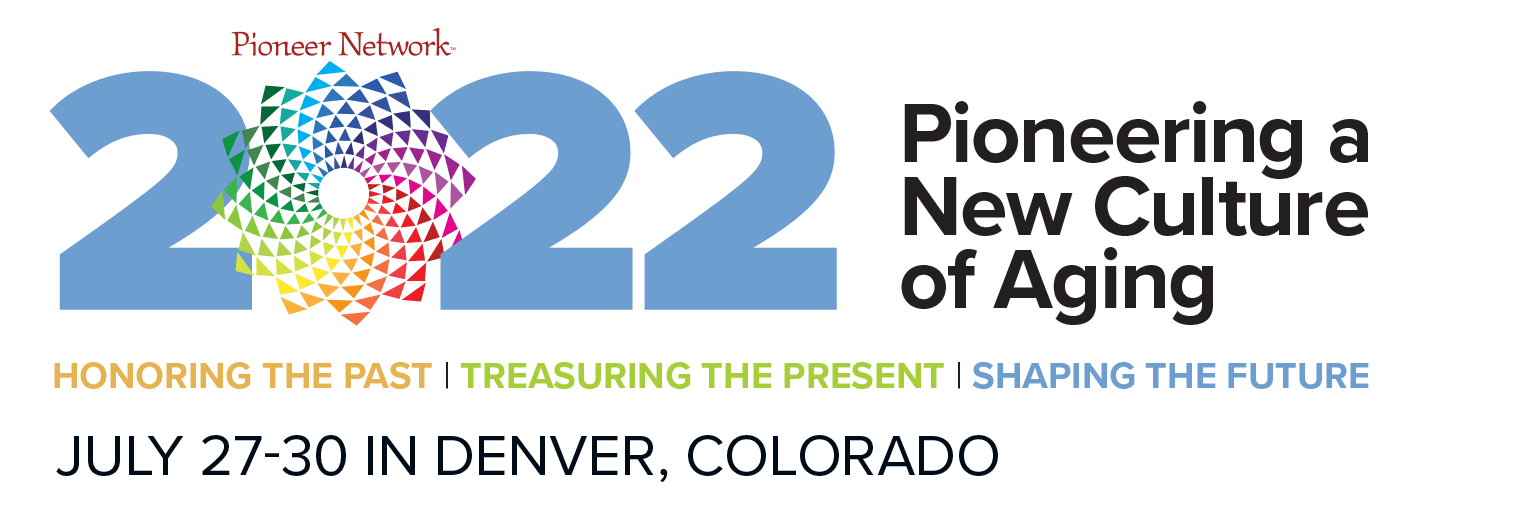
| THURSDAY, JULY 28 • SESSION A • 1:30 PM – 2:30 PM |
CLICK TO VIEW
A1
Being a Learning Organization
Marla DeVries, Chief Learning Officer, The Green House Project
Anna Ortigara, RN, MS, Gerontological Nurse Specialist
| Organizations where people continually expand their capacity to create the results that they truly desire, where new and expansive patterns of thinking are nurtured, where collective aspiration is set free, and where people are continually learning to see the whole together.
Peter Senge, The Fifth Discipline |
Organizations that are living a transformational journey need to be grounded as Learning Organizations. This concept was proposed by Peter Senge in the groundbreaking book, The Fifth Discipline. The pillars of a learning organization are supportive leaders with a clear vision and goals for organizational learning. Leaders champion and role model the values and principles of a transformed culture. And leaders support learning in the processes of daily work. The values of a transformed culture align with learning of all staff to fully participate in the organization’s mission and vision. This session will set the groundwork for the Educator Track at the Pioneer Network conference by exploring these pillars within this challenging moment in long term care settings with practical ways in which each organization can become Learning Organizations.
Bios:
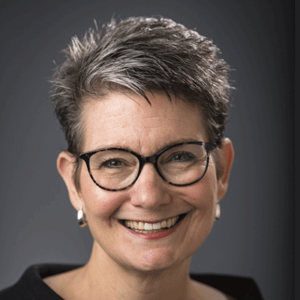
Anna Ortigara
Anna Ortigara currently is an independent contractor serving as an educator, curriculum developer and consultant with PHI and other aging services organizations. With PHI, she was Organization Development and Workforce Consultant with the Workforce Innovations Team for the past seven years where she has taught Coaching Approach to Supervision to leadership of LTC organizations and supports organizations to implement Person-directed Living.
Anna’s previous work was in the fields of gerontology and long-term care for more than four decades. After beginning her career as a registered nurse, she has since gone on to work with elders in a variety of settings, including nursing homes, assisted living, adult day services, and home care settings. Anna was inducted as a fellow of the American Academy of Nursing, the primary author of LEAP for the 21st Century LTC Workforce, the VP of Cultural Transformation for Leading Age, Illinois, Director of Residential Care Services for the Rush Alzheimer’s Disease Center in Chicago and Associate Director of Long Term Care Accreditation at Joint Commission. Anna spent six years at THE GREEN HOUSE® Project, where she was the Director of Program Development and worked closely with PHI to adapt their coaching model for The Green House Project. She frequently presents at national and international conferences on long term care topics including: culture change, quality Jobs, recruitment and retention of staff, clinical aging topics. and person-centered dementia care, aging in America. Anna received her Master of Science in Nursing at Northern Illinois University and her BSN from St Xavier College in Chicago. She was named a Leader of Tomorrow by Long Term Living in 2014.
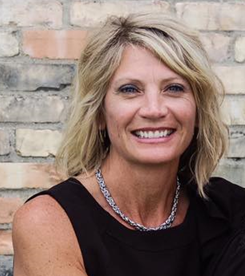
Maria DeVries
As Chief Learning Officer, Marla DeVries pours in her passion for learning and growth to the development of The Green House Project’s educational tools, resources, and experiences, with the goal of creating real and sustainable culture change. DeVries has more than 20 years of teaching experience in long-term care, built on an advocacy foundation formed in her work as an ombudsman. She celebrates what’s working today while striving for what can be tomorrow. When not at work, Marla enjoys spoiling two adorable grandchildren, the greens of a golf course, the sand of the volleyball court, and a good glass of red wine.
A2
Naomi Feil: Pioneer in Person-Centered Dementia Care
Vicki de Klerk-Rubin, Executive Director, Validation Training Institute
Naomi Feil, Founder of the Validation Method
Part 1: Using old film footage of Naomi’s first ‘Validation Group’ as an introduction, her daughter, Vicki de Klerk-Rubin, will role-play the back story of key group members and tell how Naomi developed the Validation Method.
Part 2: Vicki will then lead a series of interactive exercises: centering, observing, finding good distance, eye contact and using a respectful tone of voice.
Part 3: Through the magic of film, Naomi Feil will join Vicki and talk about her hopes for the future. Vicki will share how her mother’s pioneering work shifted elder care and inspired a wealth of ideas and methods.
Bios:
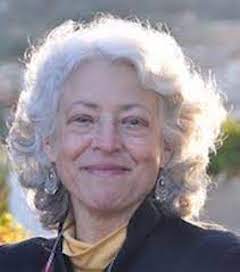
Vicki de Klerk-Rubin
Vicki de Klerk-Rubin is the Executive Director of the Validation Training Institute and a certified Validation Master. She is the author of Validation Techniques for Dementia Care and Validation for First Responders. Together with her mother, Naomi Feil, the founder of the Validation Method, Vicki co-authored the revisions of her books. Vicki holds a BFA from Boston University, an MBA from Fordham University, and is a Dutch-trained RN.
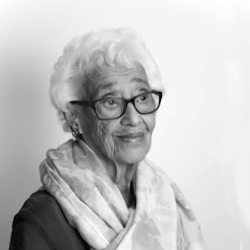
Naomi Feil
Naomi Feil is the founder of the Validation Method and the “god-mother” of person-centered care. Over the past 50 years, she has delivered over 2000 workshops worldwide that sensitized professionals and family caregivers to the inner world of disoriented older adults and gave them tools to connect and communicate with them. At 90-years-old, Naomi continues to share her wisdom through webinars and interviews.
A3
Can Art Dismantle Ageism? How Artistic Activism Can Help Senior Living Change Perceptions of Age and Being Older
Meg LaPorte, Co-Founder, Art Against Ageism
Jan Golden, Creative Entrepreneur, Age-Friendly Vibes
This dynamic and interactive session will examine how the beauty and power of art, when combined with the strategy of activism, can be effective in tackling and dismantling ageism. Participants will learn how professionals in our field can work within their communities, via residents, staff, and volunteers, to raise awareness of, address, and dismantle ageism using a centuries-old practice known as “artistic activism.” Artistic activism has had significant historical impact on social change, particularly with regard to many well-known movements, such as civil rights, women’s rights, and workers’ rights.
Presenters will review examples of historical and contemporary artistic activism; discuss and showcase creative and artistic ways that individuals and organizations are now working to tackle ageism; and examine a project created in partnership with Keswick, a Baltimore-based aging services organization that created a strategy to raise awareness of ageism that included an interactive art installation, a storytelling project, and other initiatives.
Speakers will discuss their own efforts to creatively and artistically eradicate prejudices around age and how they believe that ageism, as revealed by the pandemic, creates a call to action for senior living providers to confront and tackle ageism.
Bios:
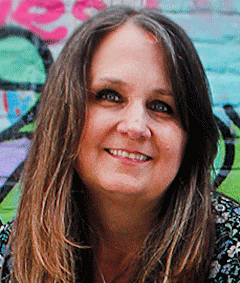
Meg LaPorte
Meg LaPorte is an award-winning journalist, writer and social entrepreneur who seeks to reframe society’s perspectives about aging. In addition to working in various nonprofit management roles for nearly her entire career, she has written about and reported on all things aging services for more than 22 years, including serving as managing editor of Provider magazine; a freelance writer for many publications, including McKnight’s Long-Term Care News, Senior Living Foresight, Changing Aging, and more; and director of communications and marketing for The Green House Project and LifeSpan Network.
Since obtaining her master’s degree in Management of Aging Services from the University of Maryland, Baltimore County, Meg has been devoted to harnessing the power of storytelling, trend spotting, and idea curation to produce potent and compelling communications and marketing campaigns. In 2016, she founded a blog known as Age in America, which seeks to reframe perceptions of age and being older in America with oral histories, storytelling, and images that illustrate the positivity, diversity, and value of being older.
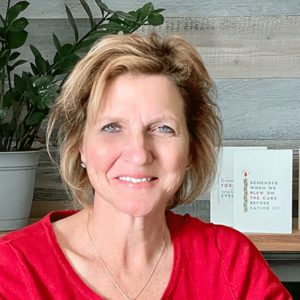
Jan Golden
Jan Golden is a digital artist who creates greeting cards and other paper goods that inspire people to celebrate age. Jan believes our youth-obsessed culture is rooted in ageism, which unfairly depicts older people as less competent, capable, and attractive.
Age-Friendly Vibes was created by Jan to celebrate age with inspiration and humor, highlighting the positive aspects of getting older. After all, if we’re lucky, we all get a year older on our birthday.
A4
A Person is a Person No Matter How Old
Ted Hudson, Online Engagement Manager, Schlegel Villages
Meaghan McMahon, MSW, Director of Strategic Development, LinkedSenior
| “The devaluing of old people is ubiquitous and unquestioned, a great unifier across the usual divides of class, race, geography, and even age.”
– Dr. Louise Aronson |
Combatting pervasive ageism is a daunting undertaking. Over the last five years, two initiatives have been making important strides in promoting an age-positive world.
For Ted Hudson, The Green Bench has been a symbol of #ElderWisdom; physically or virtually, the bench invites us all to sit alongside an older adult, share a conversation or give and offer advice. The podcast Schlegel Villages created has provided an opportunity to continue these conversations when we are unable to sit on ‘a bench’ with those around us.
Similarly, the LinkedSenior team believes in a world where people of all ages are respected and valued. Meaghan McMahon helped create the Old People Are Cool initiative to confront the harmful ageism that prevents our communities from reaching their maximum potential and to support intergenerational collaboration.
Learn how these initiatives are igniting important conversations globally and flipping the script on an ageist worldview.
Bios:
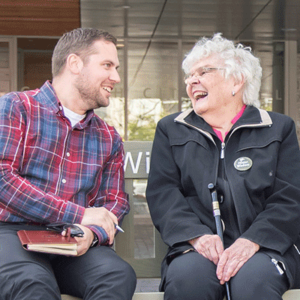
Ted Hudson and Frances
Ted Hudson has worked in the service of older adults for more than 20 years, beginning as a recreation team member and eventually becoming the Online Engagement Manager for all of Schlegel Villages. Ted is one of the key visionaries behind the #ElderWisdom campaign that has helped challenges stereotypical views on aging. The successful Stories from the Green Bench Podcast is one of Ted’s key initiatives. Ted serves on Pioneer Network’s Communications Committee.
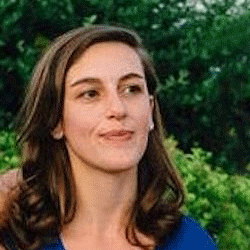
Meaghan McMahon
Meaghan McMahon is the Director of Strategic Development for LinkedSenior. She is also Founder and Director of MBM Consulting which she began in July 2015. Since that time, she has worked with local government agencies, for-profit, not-for-profit and start-up organizations in both the Washington D.C. metro area and San Francisco.
Prior to consulting, Meaghan was the Health Policy Analyst for the National Program of All-Inclusive Care for the Elderly (PACE) Association where she specialized in reviewing state and federal policy regulations affecting the dual eligible population. In 2013, Meaghan joined THE GREEN HOUSE® Project team and as the Peer Network Project Manager she provided technical assistance to over 150 open and operating Green House homes across the United States.
A5
Like and Share – Using Social Media to Enhance Mealtimes
Dominique Williams, Education Manager, Schlegel-UW Research Institute, Waterloo, Ontario
Team members from care settings are looking for mobile, agile learning solutions they don’t have to search for. With this in mind, the Schlegel-UW Research Institute for Aging (RIA) is utilizing Instagram to deliver short, targeted educational factlets that encourage learners to engage and generate content for our CHOICE+ program – meeting learners where they are.
CHOICE+ is an initiative that aims to improve the mealtime experience for residents living in retirement communities and long-term care homes. CHOICE+ focuses on creating relationship-centred practices and enhancing the dining environment. The goal of CHOICE+ is to create mealtimes that feel like home, where each resident’s preferences are respected, their dignity is honored, and positive relationships can flourish between everyone involved in mealtimes.
This interactive, engaging presentation will share how the RIA uses social media as an effective and innovative way to engage, educate, promote, connect, and mobilize knowledge about improving the mealtime experience for residents in care settings.
Bio:
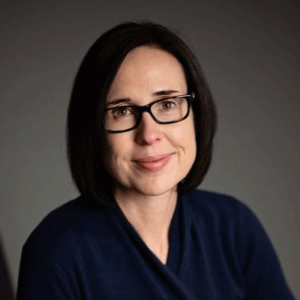
Dominique Williams
Dominique Williams (BA, BSW, MSW) is the Education Manager at the Schlegel-UW Research Institute for Aging in Waterloo, Ontario. Dominique is responsible for leading education initiatives that support changing the culture of aging, with a focus on programs such as CHOICE+ and LIVING the Dementia Journey. She has been working with teams supporting older adults for almost 15 years in Southwestern Ontario, in both clinical and community settings, and currently supports the RIA’s Culture Change clients with workshop facilitation and coaching support. She enjoys challenging deeply held beliefs around aging, older adults, and dementia. Born and raised in Australia, Dominique loves the sun and is still learning to live with Canadian winters.
A6
How Understanding the Brain Affects Person-Centered Care for People with Dementia Diseases
Jill Lorentz, Owner and Operator of Summit Resilience Training
The purpose of this class is to help attendees understand the lobes of the brain and how they function normally, and then explore the changes we see when the brain is developing impairment from Alzheimer’s and other dementia diseases. Attendees will compare their personal preferences and those of the people for which they care, so they can bridge their own needs with that of the other person. Understanding the history and preferences of the person they are caring for is paramount to providing person-centered care. How to approach the person living with dementia so that the care partner understands that their actions create reactions, and not necessarily a symptom of the disease, will be covered.
Bio:
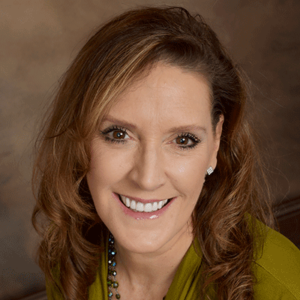
Jill Lorentz
Jill Lorentz is the owner of Summit Resilience Training, Dementia Education for Caregivers, and has spent the past 25 years working with caregivers and friends with diagnosis of various dementia’s, including her own family. She is host of the podcast, Dementia Resilience with Jill Lorentz, with listeners in all 50 states and 71 countries, providing strategies and techniques for families and professionals working and living with these difficult diseases. Jill teaches monthly classes presented by the physicians of the University of Colorado Neurology Memories & Movements Disorders Clinics for the patients and their families. She is a Board Member of the Colorado Coalition for Culture Change.
A7
Cultivating Vitality through Resident Engagement
Adria Paxton, Administrator, Devonshire Acres Nursing Home
The Devonshire Acres greenhouse is a 30 X 50 Nexus Building housing 10 hydronic Towers located on the property at Devonshire Acres. The Greenhouse Project began in the Spring of 2018 as a pilot project focusing on resident engagements, farm fresh vegetables and therapeutic activities. The presentation will take the audience through all project development phases providing ideas and inspiration for others to establish similar projects. The presentation will include outcomes and feedback from residents, families, staff, and community members who have been involved with and who have benefited from the unique engagement opportunities supported by the greenhouse.
Bio:
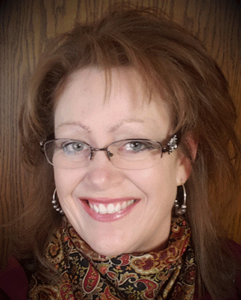
Adria Paxton
Born and raised in Sterling, Colorado, Adria Paxton is a graduate of Colorado State University with a bachelor’s degree in Ag Business and Economics. She began her career in healthcare as an activity aide while in college and later transitioned into the roles of medical records, human resources director and business office manager. In 1997 she earned her Nursing Home Administrator’s License through the State of Colorado and her Assisted Living Executive Director Certification. Adria has a broad knowledge of the Long-Term Care industry with over 30 years of experience. As the Administrator of Devonshire Acres, Adria has assisted in the daily operations of the community in coordination with her management team and support staff, their team has a strong desire to advocate for the senior population in Northeast Colorado. In addition to oversight of daily operations, Adria enjoys grant writing to provide additional funding for resident life enrichment opportunities which includes the Devonshire Acres Greenhouse Project, a 1500 square foot greenhouse focusing on hydroponically grown vegetables, horticulture therapy, and social engagement.
A8
How Whole Team Huddling Around the 40 Winks Sleep Study Guided Us Back to Person Directed Care During the Pandemic
Hope Carwile, BA, LCSW, CCTP, 200 Yoga Teacher Training, Certified Clinical Trauma Professional
Kate Smith, MA, Doctoral Student, University of Alabama
Hannah Marie Heismann, Social Services Director, Brookshire House
Vivage Senior Living is part of a national study called “40 Winks” with the University of Alabama, funded by NIA. In the midst of overmedicalization in response to covid, this project provided a pathway to person directed care. The “bite-size” approaches to team communication have been feasible even during acute covid stress. Staff and residents welcomed the normalcy of having something other than covid to focus on. When in crisis mode, grounding in the basics of huddling with staff and individualized problem-solving for resident quality of life provides an opportunity to accomplish something good. One resident now gets herbal tea at night while another is able to get outside more, because all staff, including those closest to the resident, problem-solved creative ways to improve sleep and daytime activity. Learn simple, powerful techniques for how to strengthen teamwork, even in trying times, for everyone’s benefit.
Bios:
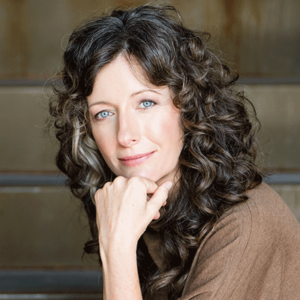
Hope Carwile
Hope Carwile has approximately 20 years experience in healthcare, primarily in long term care senior living settings. She is committed to person-directed strength-based approaches, improving the quality of life for individuals living with dis-ease and for the care partners supporting them. Presently Hope sits on the Skilled Nursing Innovations Grant Board, is 1st Vice President of the Colorado Culture Change Coalition, Co-Chair of the Value Added Action Group for the Direct Care Workforce Collaborative and Chair of the Colorado Long Term Care Community Ethics Committee.
Hope is an educator in Eden Alternative Associate Training, Green House CORE, Integrative Wellness including Complementary and Alternative Medicines, and Trauma Informed Care. She is also a facilitator of Chair Yoga and the Virtual Dementia Tour. Hope also practices Therapeutic Touch and Emotional Freedom Techniques with residents and care partners in Skilled Nursing Homes. Building trusting relationships, creating safe comfortable moments where healthy risk can take place, and exploring better ways to navigate modern day health care challenges are at the core of Hope Carwile’s work.
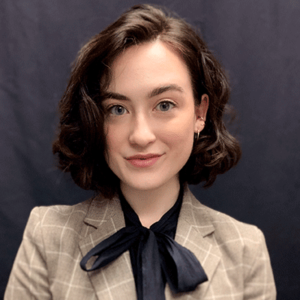
Kate Smith
Kate Smith is a doctoral graduate student in the Geropsychology concentration of the Clinical Psychology program at the University of Alabama. She completed her master’s in clinical psychology at Minnesota State University in 2020.
Kate is passionate about exploring non-pharmacological interventions for distress behavior in individuals with dementia and improving valued living and person-centered care. She has committed many hours of volunteer work with activities directors in rural areas of Minnesota, as well as completing her master’s practicum at the Minneapolis Veteran’s Home working directly with their behavioral health team. Her master’s thesis investigated the use of preference assessments to identify person centered activities to increase independent engagement. She is presently working with the 40 Winks team as a graduate research assistant.
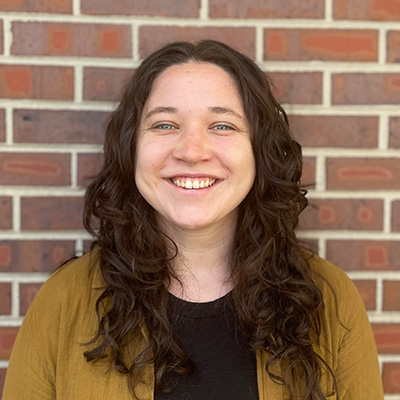
Hannah Marie
Hannah Marie Heismann is currently the Social Services Director at Brookshire House, a Vivage community. She started her career in social work over two years ago, and has been working in Nursing Homes since 2014. Hannah Marie is passionate about advocating for culture change within long term care, and creating environments for aging adults to thrive. She fully believes Brookshire House provides opportunities for individuals living with dementia to flourish within their current abilities. She is enrolled in University of Denver’s Masters of Social Work program and will be starting in September 2022. Hannah Marie loves spending time outdoors, with residents, family, friends, and with her dog Norman.
A9
Supporting Transgender Residents through Ally-ship
Dan Stewart, Associate Director of the Aging Equity Project, Human Rights Campaign Foundation
Sherrill Wayland, Director of Special Initiatives, SAGE
Providing person-centered care necessitates quality of care and true understanding of what quality of life means for each individual. As professionals continue the work of culture change within their communities, there may be barriers in ensuring all residents feel seen, known, and accepted as their true selves. Transgender older adults are particularly fearful and often avoid accessing care and supportive services. Professionals often cite limited knowledge of how to support transgender residents in their communities. During this session, attendees will deepen their understanding of what person-centered care for transgender older adults looks like within senior housing and long-term care communities. Participants will explore the guide, How to be an Ally to Transgender Older Adults, watch a video and discuss the words of a transgender woman, and be introduced to an LGBTQ+ assessment tool and survey, The Long-Term Care Equality Index. Transgender elders deserve to age with dignity, respect, and sense of safety. Attendees will leave with practical guides, tools, and confidence to explore how to support transgender older adults in their lives and community.
Bios:
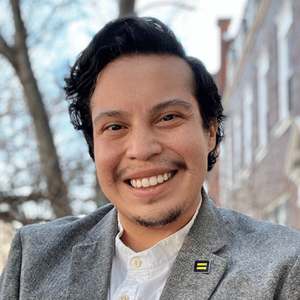
Dan Stewart
Dan Stewart is the Associate Director of the Aging Equality Project at the Human Rights Campaign Foundation. He is the HRCF lead for the Long-Term Care Equality Index. A proud Latino, Indigenous, transgender man, and gerontologist, Dan has ten years of experience in the aging and LGBTQ+ advocacy fields. He received his Bachelor of Arts in Psychology from Saint Louis University and Master of Science in Gerontology from the University of Missouri-St. Louis. He melds his experiences in the aging field, his former work as an academic, and a dedicated advocate to work towards equality for LGBTQ+ people across the age spectrum.
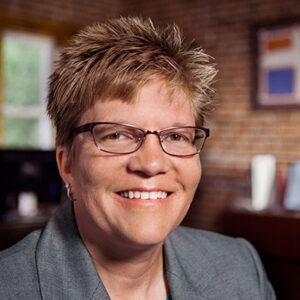
Sherrill Wayland
Sherrill Wayland is the Director of Special Initiatives where she directs the operations of programs such as SAGECare, the National Resource Center on LGBT Aging and is SAGE’s staff lead for the Long-term Care Equality Index. Sherrill began work with SAGE at the local level in 2008, founding the SAGE Affiliate in St. Louis, MO and became a certified trainer with SAGE in 2011. Prior to joining SAGE at the national level, she successfully led the merger of SAGE in St. Louis with the Missouri Statewide Equality Organization, PROMO Fund. Sherrill earned a Master of Social Work degree from the Brown School of Social Work, Washington University in St. Louis and has over 20 years of professional experience in the fields of education, disability, and LGBT older adult advocacy.
A10
REVEAL Aging: Contemporary Education to Engage and Retain Employees
Julie Boggess, VP of Grant Initiatives, AGE-u-cate
Laura Ellen Christian, VP Clinical Engagement, AGE-u-cate
Care providers of older adults remain challenged to find solutions to recruit, stabilize, and develop their workforce. A comprehensive solution has evaded the industry and strategies of the past have proven ineffective. REVEAL Aging represents a staff education and training design that inspires employee engagement- an essential element to inspire employee retention. Describe the benefits of experiential and device enabled micro-learning and identify how to employ it as a strategy to curb turnover.
Bio:
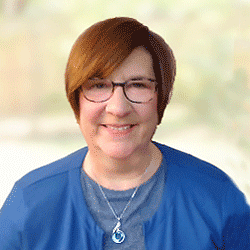
Julie Boggess
Julie Boggess has worked in Aging Services for 31 years. Most of these were spent in skilled nursing, and in 1990, she obtained her Illinois Nursing Home Administrator’s license and moved into management and executive level positions. In February 2020 she joined the AGE-u-cate® team and is now the Vice President of Grant Initiatives. Julie calls upon her experience on the front lines to assist with developing and delivering training curriculum for aging services providers and manages CMP grant projects in various states. She served on the Board of Directors for LeadingAge Illinois and is an instructor in Gerontology and Leadership in Aging Services at Northern Illinois University in DeKalb, IL. Julie has a B.S in Child and Family Studies from Northern Illinois University in DeKalb, IL, and a master’s degree in Public Administration/Healthcare from Roosevelt University in Chicago.

Laura Ellen Christian
Laura Ellen Christian comes to AGE-u-cate with 17 years of experience in the senior living industry. She began her career as an Activity Director for a senior living community, which quickly led to the opportunity to expand her reach. For the past 14 years she has led The Arbor Company in the development and implementation of comprehensive dementia training programs for care partners and innovative engagement programs for seniors at large.
She is a graduate of the University of Georgia and lives in Smyrna, GA with her husband and two boys.
| THURSDAY, JULY 28 • SESSION B • 3:00 PM – 5:00 PM |
CLICK TO VIEW
B1
Learning as a Process, Not an Event: The Life Cycle of Learning
Marla DeVries, Chief Learning Officer, The Green House Project
Jacquie Hurt, CDM, CFPP, CDP, Licensed Assisted Living Administrator, Park Springs Health Services
Tim Knight, RN, BSHCA, CDP, Executive Director of Organizational Development & Training, Pebblebrook at Park Springs
An organization’s commitment to education has a direct impact on the growth of its workforce and job satisfaction. Statistics show that when employees are provided with training that is relevant to their jobs and/or training that supports their professional growth, turnover is reduced, and job satisfaction increases. What we provide for education/training opportunities to our teams has direct impact on their commitment to the organizational mission, vision, and values.
The education provided to employees is the foundation of person-centered, person-directed living. The circle of care isn’t complete when employees are not connected to purpose. Knowing what our purpose is in life is an important and necessary component when determining what it is that we truly value. By exploring this opportunity, employees can reconnect with what brought then to this work in the first place. Care is no longer “just a paycheck” type of job. 76% of employees say that a company would be more appealing if it offered additional skills training to its staff. (Lorman, 2021)
Bios:

Maria DeVries
As chief learning officer, Marla DeVries pours in her passion for learning and growth to the development of The Green House Project’s educational tools, resources, and experiences, with the goal of creating real and sustainable culture change. DeVries has more than 20 years of teaching experience in long-term care, built on an advocacy foundation formed in her work as an ombudsman. She celebrates what’s working today while striving for what can be tomorrow. When not at work, Marla enjoys spoiling two adorable grandchildren, the greens of a golf course, the sand of the volleyball court, and a good glass of red wine.
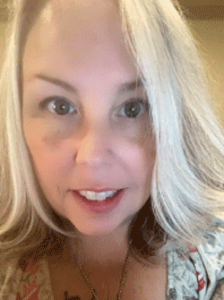
Jacquie Hurt
Jacquie Hurt has held leadership positions in healthcare for over 25 years and is passionate when it comes to changing the culture of long-term care. She has been involved in culture change in hospitals, assisted living and long-term care. She joined Park Springs in January of 2017, excited to be a part of the culture change and has been involved with every aspect of the training and implementation of the SPIRIT model of care. Jacquie now serves as the primary trainer for the Household Model of Care and SPIRIT program for Isakson Living. She supports a memory care team that obtained the first Butterfly Home Certification in the United States. She develops and presents training topics that include dementia, person-directed care, diversity and inclusion, ageism, ableism, household care models and mealtime experience,
In addition to being a Certified Dietary Manager, Jacquie is also a Certified Dementia Practitioner, Certified Eden Associate, Certified ServSafe Instructor and Registered Proctor and Licensed Assisted Living Administrator
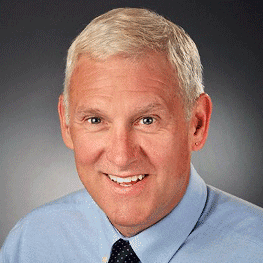
Tim Knight
Tim Knight began his healthcare career working as a CNA in long term care and later obtained his license as a Registered Nurse. Tim holds a bachelor’s degree in Healthcare Administration. Tim is a Certified Eden Associate, a licensed Assisted Living Administrator and a Certified Dementia Practitioner. He is originally from Maine and relocated to Stone Mountain, Georgia in 2017 to assume the position of Executive Director of Health & Wellness Services at Park Springs. In 2016, Tim served as the President of the Maine Culture Change Coalition and worked on several statewide projects that supported changing how traditional care is delivered.
In July of 2017, Tim led the Park Springs team in opening the new Pebblebrook Health Center and in August 2018, after collaborating with Dementia Care Matters from the United Kingdom, Pebblebrook Memory Care became the first accredited Butterfly Home in the United States.
Tim is currently working at the Isakson Living communities in the Atlanta area. (Park Springs in Stone Mountain and The Terraces in Buckhead). He continues his passion for culture change by providing education, direction and support of the Household Model of Care and person-centered, person-directed care in his current role of Executive Director of Training and Organizational Development.
B2, Creating a Resident Safety Chain – Leadership Before, During and After the Pandemic, has been cancelled
B3
The Joy of Dementia (You Gotta Be Kidding!) Creating a New Performance of Dementia…and Life
Mary Fridley, Coordinator, Reimagining Dementia Coalition
Brian LeBlanc, Advocate and Co-Founder, #WeAreDementiaStrong
Nicolette McDermott-Ketchum, CMDCP, CDV, PA-C, BS Ed
Across the world, there is a growing demand for more innovative, relational, improvisationally playful and humanizing approaches to dementia care that are reimagining dementia away from the “tragedy narrative” toward community, creativity, joy and growth for everyone, regardless of age, life circumstance and/or cognitive or physical limitations. People living with dementia, care partners and other family/community members, activists, academics and artists are coming together to develop new approaches to seeing, to practicing and to empowering everyone in the “dementia ensemble” to move beyond stigma and shame, to express their humanity and to create their lives.
This experiential workshop will use improvisational games, creative exercises and philosophical/performed conversation to explore what it means to create an environment which supports everyone involved in the “dementia ensemble” to enjoy the “non-knowing growing” that is possible, even in the midst of the uncertainty that characterizes so much of our lives now, with improvisational play.
We welcome everyone – people living with dementia, care partners and family, academics, artists, advocates and more looking for more intimate, community-focused, humanizing ways to live with memory loss, aging and dementia; who are interested in using diagnosis as a starting point for creativity; and who want to discover together how to have more connection, growth, inclusion, hope…and yes, joy in even the most difficult life.
Bio:

Mary Fridley
Mary Fridley is on the faculty at the East Side Institute in NYC, where she co-created and leads The Joy of Dementia (You Gotta Be Kidding!). She serves as coordinator of Reimaging Dementia: A Creative Coalition for Justice, which has over 600 members globally. Mary practiced social therapy for 12 years and uses the social therapeutic approach as an experienced teacher and workshop leader. She is author or co-author of several articles and chapters on the Joy of Dementia, including a chapter that appears in The Applied Improvisation Mindset published in 2021. Additionally, Mary is a guest blogger for agebuzz.com and a playwright and theater director. She makes her living as a non-profit fundraising consultant.
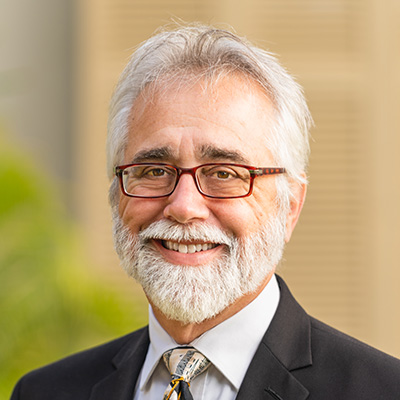
Brian LeBlanc
Brian LeBlanc, Co-Founder of #WeAreDementiaStrong, a not-for-profit, is living with Vascular Dementia and Alzheimer’s Disease. Brian made a career by using his voice and so knew he HAD to use it now to Advocate and Educate for Persons Living with Dementia and their Care Partners. He does this also to honor his mother and grandfather who died with Alzheimer’s disease. Brian is now an International Alzheimer’s Advocate, Keynote Speaker, Session Presenter and Congressional Alzheimer’s Ambassador for the Alzheimer’s Association. He speaks at international, national, regional and local conferences, seminars and workshops. Brian works tirelessly to educate individuals who are living with dementia as well as their care partners on the topic of “living well.” He is also a Crisis Intervention Team Trainer for Law Enforcement and has participated in multiple opportunities to speak to lawmakers, not only in Florida, but in Washington, DC about the value, need and importance of funding research, education, and support systems for persons living with dementia and their care partners.
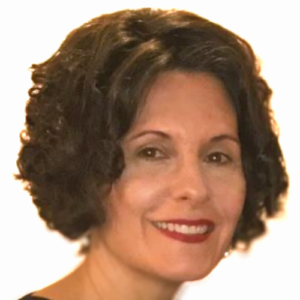
Nicolette Ketchum
Nicolette Ketchum wants to be a part of changing the culture of
aging and is elated to be participating in this week’s
Pioneer Network Conference. She is a daughter, sister,
wife, mother and grandmother interested in the
intersection of generations (especially across the
caregiving spectrum) and how we can encourage and
support each other in both pleasant and tumultuous times by incorporating creativity into our daily living. She is a primary care physician assistant with a previous career also as an elementary and middle school teacher.
Nicolette currently facilitates an online social connection for people living with dementia and their carers called the Hummingbird Memory Café. Café
engagements include a monthly themed café, as well as the home delivery of
creativity kits. Nicolette is also a steering committee member of Reimagining
Dementia: A Creative Coalition for Justice as well as a planner and presenter with
the Dementia Possibilities Conference. She is a member of the Northwest New
Mexico Chapter of the Campaign Against Racism as well.
Nicolette has recently relocated to Las Vegas, Nevada and looks forward to
continuing the café online in addition to exploring the opportunities available in
her new town (and state) for advancing the conversation and taking action to
create a world where the diversity of all of us is included in the planning and
leadership of our communities.
B4
Responding to the Response – Behavioral Expression Management Strategies
Heather Johnson, Resource Nurse, Empira
Kelly Klund, Resource Nurse, Empira
Behavioral expressions do not occur in a vacuum, but rather in synchronization with the individual, environment, and influence of others. In this session, we will dive deeper into understanding and responding to the unmet need these “behaviors” are communicating.
Although many of our task-based operational processes meet the physical needs of the elders we serve, we have a responsibility to partner, understand, and meet their psychosocial needs also, including the need for companionship, independence, control, identity, and purpose.
Using a tool developed by Empira through our Behavioral Expressions project, we will help attendees learn to interpret “behaviors” as a form of communication, will strengthen the learner’s understanding of unmet needs, and provide resources designed to proactively address those needs.
Bio:
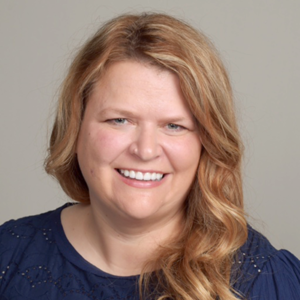
Heather Johnson
Heather Johnson supports evidence-based quality improvement through the development and deployment of Empira signature programs. She presents the best practices and key findings from Empira’s signature programs at local and national conferences. Having grown up in a family that provided adult and child foster care for individuals with disabilities and mental illness, Heather knew at a young age that she enjoyed taking care of others and pursued her education in healthcare. As a Registered Nurse, she has provided direct care, supervision, team leadership, and mentoring to colleagues and patients. Heather takes great pride in having the ability to positively affect practices in long-term care by leading performance improvement programs and continuing her own education.
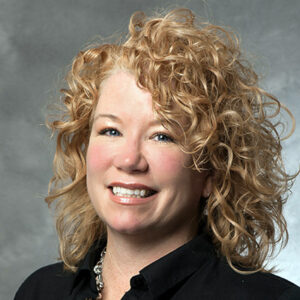
Kelly Klund
Kelly Klund is passionate about improving the aging experience. She has worked in healthcare since 1989 with broad experience as a staff nurse, unit manager, nurse consultant, and clinical project manager in the areas of quality improvement, infection control, staff development, admissions, marketing, and business development. She enjoys program development along with building relationships. Kelly has been with Empira since 2016 and has presented Empira’s work to thousands of people across the United States. She believes that every day offers an opportunity to educate professionals in aging services to know better so they can do better.
Kelly holds an associate degree in practical nursing from Minnesota State College Southeast in Red Wing MN and is enrolled in the Bachelor of Science in Gerontology program at the University of Maryland Global Campus.
B5
Pandemic Learnings from The Green House Project: Lessons for Everyone AND How They Can Work for You
Amanda Loomis, NCIDQ, IIDA, WELL AP, Certified Interior Designer, SWBR
Robert Simonetti, AIA, Senior Living Studio Leader, LaBella Associates
Debbie Wiegand, Project Coach, The Green House Project
Research conducted during the pandemic has demonstrated that The Green House model was able to outperform traditional nursing homes by helping to prevent and mitigate the impact of COVID-19 on elders. The presenters will discuss ways the core principles and elements of The Green House model and their successes can be applied to any household or traditional model in both physical environment and operational changes. Presenters will review case studies of projects that have been completed and some that are still in the planning process to demonstrate ways that traditional senior care environments can be transformed to promote autonomy, purpose, and dignity for elders and staff that occupy the space.
Bios:

Amanda Loomis
Amanda Loomis was inspired to be a part of the design community from a young age. She has always had a strong inclination towards creativity, art, and a passion for helping others. She has turned those attributes into a career in interior design with a focus on creating supportive and inclusive interior environments. Throughout her career at SWBR, Amanda has had the opportunity to work on a wide range of projects including K-12, Higher Ed, Housing, and Senior Living Environments. This experience sparked a growing passion in developing a specialty in designing senior living environments. For Amanda, it’s about much more than design, it’s about creating places that help elders lead full and meaningful lives.
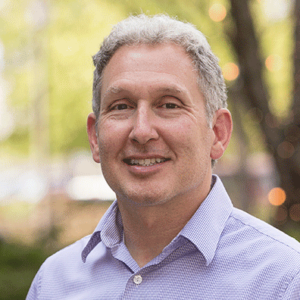
Rob Simonetti
Rob Simonetti is a Senior Living Studio Leader with LaBella Associates with 25 years of professional experience. He has been focused on skilled nursing and senior environments for the last 20 years and is dedicated to designing meaningful environments for elders. His experience includes design on many senior housing and healthcare projects. He works with providers to define environmental requirements, educates regulators and stakeholders, performs code analysis, project design, and consultant coordination.
Rob is a trained Certified Eden Alternative Associate which has allowed him to better understand providers seeking to change their culture of care and their environments. With Pioneer Network, Rob has been involved in Life Safety Code and International Building Code Task Forces, working to revise Code affecting senior environments. He has worked in various models designing small house memory care homes, community based Green House homes, and Household renovations. Rob has presented at EFA, Eden, Pioneer Network, and Green House Conferences and serves as President of SAGE and on the Environments For Aging (EFA) Editorial Advisory Board.
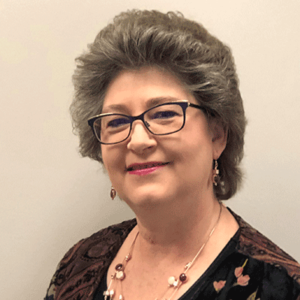
Deb Wiegand
Debbie Wiegand joined The Green House Project team in 2012 as Project Guide, then Director of Operations and recently transitioned to a Project Coach. She collaborates with senior living leaders to advance cultural transformation related to design, financial modeling, regulatory application, and project management. Through creative problem-solving approaches, Debbie collaborates with leaders to successfully strategize and challenge the status quo in bringing about sustainable change in a highly regulated industry where margins and mission must both live. Taking the road less traveled has led to new heights where innovation thrives, and elders live their best life. Debbie has served as a Licensed Nursing Home Administrator and Executive Director. Her culture change journey began in 1994 where she piloted the Eden Alternative in Texas as part of an initial research project. That success strengthened her resolve to never settle, while embracing challenges as learning opportunities, and being a disrupter where change is rarely championed. Industry leaders and influencers have shaped the many creative and inspirational encounters that drive her passion to push the envelope for a better model of care.
B6
It’s a Beautiful Day in the Neighborhood – The Woodlands: An Interdisciplinary Team Approach
Alicia Vance Aguiar, PhD, RDN, LD, FAND, Registered Dietician, Meth-Wick Community
Drew Hebert, CDM/CFPP, Director of Dining Services, Meth-Wick Community, Sodexo Quality of Life Services
Amber Jedlicka, Director of Post-Acute Care, The Meth-Wick Community
Bobby Wullner, Household Coordinator/CNA, The Meth-Wick Community
Our Culture Change Journey has involved, first, an evaluation of current systems in institutional nursing homes and second, the intentional development of new systems to align with this person-directed care philosophy. The Woodlands Skilled Nursing Home is a part of The Meth-Wick Community CCRC. The Woodlands embarked on its culture change journey 7 years ago based on the following 3 principles: (1) Person-directed Care Philosophy of Care, (2) Organizational Redesign – “Rejuvenate Team” with Household Coordinators, and (3) Architecture/Thoughtful Design – “Neighborhoods.” This journey has resulted in these positive quality measure outcomes: (1) From 1 Star (2016) to 5 Stars (2019 to present) Rating, including 5 Star “Resident Care Outcomes”; (2) Unintentional weight loss below state/national averages, and (3) “Best Senior Living Community in Cedar Rapids / Iowa City Corridor” Award – July 12, 2021. During the COVID-19 Pandemic, we had to adjust and accommodate. There were some setbacks, however, our culture survived, and we are driven to come out of this pandemic even stronger in our culture than prior to the pandemic. Our journey is an Interdisciplinary Team (ID) effort– key to success in our journey – members working together to find solutions to challenges. Our ID Team will be sharing resident experiences, along with practical knowledge and tools for those who are just starting as well as those who have been actively engaged for some time on this culture change journey
Bios:
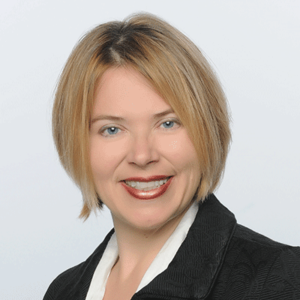
Alicia Vance Aguiar
Dr. Alicia Vance Aguiar has worked as a geriatric nutrition practitioner for the past 30 years. She began implementing culture change practices as a corporate dietitian in long-term care in the early 2000’s. She has been an advocate for person-directed care that promotes consistent staffing, liberalized diet strategies and flexible dining to meet the unique needs of residents in a home atmosphere. Her research has focused on education and assessment. In addition to clinical responsibilities, Alicia teaches courses at the local community college for nursing students and dietary managers.

Drew Hebert
Drew Hebert, is currently General Manager of Meth-Wick Community and Former Executive Chef. Drew has worked at Meth-Wick for Sodexo for 15 years. Drew graduated from Kirkwood Community College with an associate degree in Culinary Arts. In 2021, he received his CDM certification. Drew has a strong passion for making dining at Meth-Wick an experience and not just a meal.
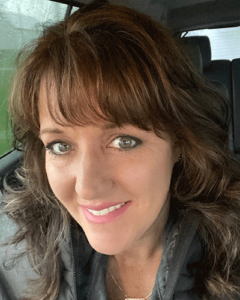
Amber Jedlicka
Currently working as a Licensed Nursing Home Administrator, Amber Jedlicka has 20 years of experience working as a manager in Life Plan communities in Iowa. Amber has served as the director of a cutting-edge dementia specific Assisted Living, the Director of a newly constructed Active Adult Campus, and the director of Home and Health Services. In Amber’s current role, she works for The Meth-Wick Community, in Cedar Rapids, Iowa, serving as the director of Post-Acute Care. Amber has a passion for mentoring others and sharing the knowledge of her culture change journey. Amber completed an MBA program in May of 2021 and has conducted numerous training seminars over the years with a focus on her passion for employee growth and development, having fun in the workplace, customer service skills, communication skills, and working in a people centered business model.
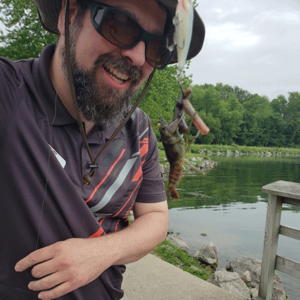
Bobby Wullner
Bobby Wullner has been a CNA for The Woodlands for the last twelve years. Six years ago, when The Woodlands started its culture change journey, Bobby was promoted to a newly created Household Coordinator position. This is a flexible role in the skilled nursing home that helps to meet the resident’s needs in many ways. Bobby’s overreaching purpose is to see that the household is each resident’s home and sanctuary and that the people who live here direct their own lives, individually and collectively. He also helps to foster leadership and a strong community with each household dedicated to continuous learning. As a Household Coordinator, Bobby helps to keep the design and culture of the neighborhoods feeling like a true home and preventing the institutional creep in design and culture as a wolf at the door.
B7
The Java Project: How Residents are Addressing Loneliness in Long-Term Care
Bonnie Lawrence, Vice President of Quality of Life for Synergy Health Care Services
Kristine Theurer, Founder & President, Java Group Programs
Social isolation and loneliness are affecting most older adults living in care homes. Social isolation and loneliness are associated with increased falls and stress-related health ailments including hypertension, poor immune function, depression, and cognitive impairment. Typical social programming focuses on entertainment and distraction and reviews indicate that few loneliness interventions are effective. One of the principles of Pioneer Network is that relationships are the fundamental building block of a transformed culture. The Java Project is an innovative model based on resident peer support and mentoring to build meaningful relationships and reduce loneliness. Research results of this approach demonstrate a significant reduction in loneliness and depression scores and a 60% increase in the number of monthly programs attended (5-7). Over the past year, Consulate Health Care implemented the Java Project in six communities in North Carolina. Using an observational scale, improvement score averages in one community showed a 38% decrease in social isolation, 43% decrease in loneliness and a 35% increase in happiness among participating residents. Attendees will hear the residents’ stories and experiences, participate in a live peer support group, and leave with a take-away strategy on implementing peer support and mentoring within their organization.
Bios:

Bonnie Lawrence
A nurse for nearly 40 years, Bonnie Lawrence is the Vice President of Quality of Life for Synergy Health Care Services. Working in the long-term care field since 1993 in various roles, she is currently serving as the VP Quality of Life. She understands the connection between the mind, spirit and body and is dedicated to decreasing social isolation and improving community in the centers she serves. She believes firmly that social isolation contributes to depression, poor healing, progression of dementia and loss of a sense of purpose and wellbeing. She frequently presents to the companies and homes that her company serves, and is a strong proponent of holistic health care, empowering residents, and Culture Change.
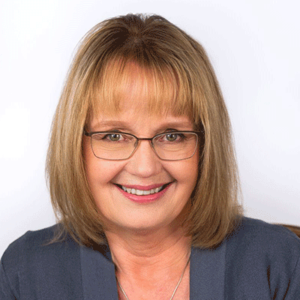
Kristine Theurer
Dr. Kristine Theurer has pioneered the use of standardized peer support and mentoring programs to address loneliness and social isolation among older adults. She is author of ‘It Makes Life Worthwhile!’ Peer Mentoring in Long-Term Care in Aging & Mental Health and The Need for a Social Revolution in Residential Care, the most downloaded article in the Journal of Aging Studies. Dr. Theurer has received numerous research awards including from the Michael Smith Foundation for Health Research and the Social Sciences and the Humanities Research Council of Canada.
B8
Using a Trauma-Informed Approach to Unravel Our Collective Trauma from COVID
Kim McRae, FCTA (Family Care Giver Turned Advocate), Founder, Have a Good Life, Co-Founder, Culture Change Network of Georgia
Leigh-Anne Royster, PhD, Assistant Vice President for Diversity, Equity and Inclusion, Duke University
This will be an interactive session aimed at applying the five principles of a trauma-informed approach to our lives, work, and organizations. Using case scenarios and collective sharing, we will begin to unravel our collective traumas surrounding COVID-19 and experiences across difference. We will explore what worked, what was needed, the highs and the lows, as well as takeaways from experiencing and living through a pandemic and the last two years. Participants will leave this workshop with an understanding of how we can use trauma-informed approaches to create person-directed organizations that use collaborative strategies to support and empower our workforce. Participants will also explore strategies for employing trauma-informed principles in their positions and across a variety of relationships, as well as throughout their culture change journey.
Bios:
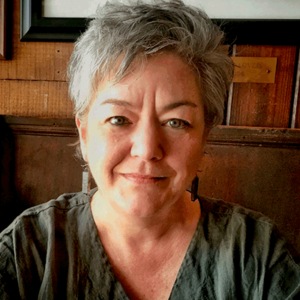
Kim McRae
Kim McRae, FCTA (Family Caregiver Turned Advocate), is a consultant, speaker, educator and advocate. She is also an Educator and Mentor for The Eden Alternative®. Kim works with organizations as a thought leader, change agent and subject matter expert on caregiving, culture change, person-directed living, and person-centered dementia care. Kim has been involved with the national culture change movement since 2006 and co-founded the Culture Change Network of Georgia in 2008.
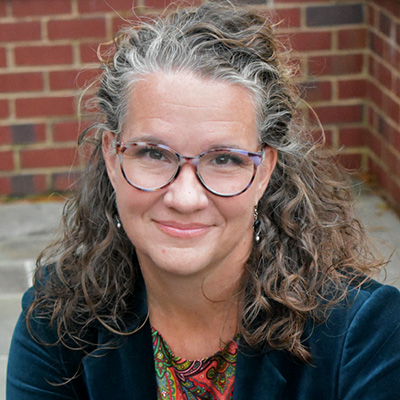 Leigh-Anne Royster is an educator, facilitator, and administrator focused on inclusion and equity development through policy, education and intervention.
Leigh-Anne Royster is an educator, facilitator, and administrator focused on inclusion and equity development through policy, education and intervention.
Dr. Royster is currently the Assistant Vice President for Diversity, Equity, and Inclusion at Duke University. She joined Duke from Elon University where she served in multiple roles including the Director of the Center for Equity and Inclusive Excellence and the Director of Health Services. Dr. Royster holds a B.A. from UNC Chapel Hill, an MPA from the University of Colorado, and a Ph.D. from UNC Greensboro.
B9
The Pathways Series: Creating Stillness and Evoking Person-Centered Care for Care Partners
Ashley King, Executive Director of Kenneth E. Spencer Memorial Home and Co-Founder, Person Centred Universe
Daphne Noonan, M.Ed., Executive Director of Nashwaak Villa Nursing Home, Co-Founder and Transformational Leadership Coach, Person Centred Universe
In follow up to the successful Pathways Series delivered in collaboration with Person Centered Universe, Lifelong Inspiration, and Dr. Gary Irwin-Kenyon, follow the team through this engaging 2-hour workshop session providing the principles of stillness and refuge for those in the caring profession. Dive deeper into the meaning of stillness, and how incredibly important it is for those who are caring for others, to care for themselves first. Once we’ve reframed our thinking and spent some time finding our own stillness, learn how our own stillness and refuge can improve our approach to person centered dementia care. Participate in a series of exercises to encourage reflection and understanding, and build empathy for the people you care for.
Bios:
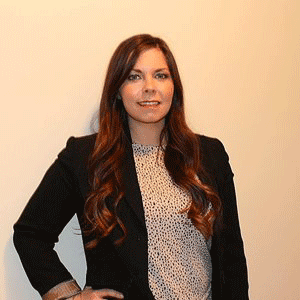
Ashley King
Ashley King first became interested in the field of aging when she was providing care to her grandmother at home. She has fifteen years of experience in community and long-term care. Alongside Person Centred Universe, Ashley is the Executive Director of Kenneth E. Spencer Memorial Home in New Brunswick, Canada.
Ashley has developed numerous training programs including the use of individualized music therapy, therapeutic activity, and Snoezelen Rooms, among others. She holds a BA in Gerontology, is a certified educator for the Dementia Understanding the Journey Course, holds a certificate from the NCCDP as a Certified Dementia Practitioner and is certified for Dementia Care Mapping from the trailblazing Bradford University in the UK. She has previously been a board member of the provincial chapter and national federation of the Alzheimer’s Society of Canada.
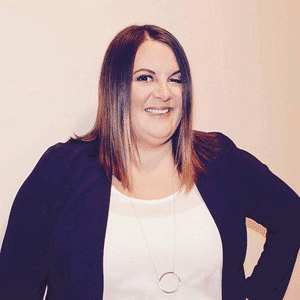
Daphne Noonan
Daphne Noonan has twenty years of experience working in a variety of roles in long-term care in Ontario and Atlantic Canada. Alongside Person Centred Universe, she is currently the Executive Director of Nashwaak Villa Nursing Home in New Brunswick, which she has taken through a transformation to become an award-winning Planetree Gold Certified organization following the principles of person-centred care. At Person Centred Universe, Daphne provides transformational leadership coaching and other consulting services, develops new programs, and is a sought-after speaker in industry events.
Daphne holds a BA in Gerontology, M.Ed in Adult Education, a diploma in Health Sciences specializing in Therapeutic Recreation, and is certified for Dementia Care Mapping from the trailblazing Bradford University in the UK. She has previously been a board member of the provincial chapter and national federation of the Alzheimer’s Society of Canada.
B10
Be Quick on Your Feet: Utilizing Agile Methodology to Support Person-Centered Care Initiatives
Karen Eshraghi, Director of Grants and Research, Abramson Senior Care
Alexandra Heppner, Project Manager for the PELI-Can Project, Scripps Gerontology Center, Miami University
This session will describe the journey of a large nursing home provider utilizing Agile methodologies to achieve their goal of delivering preference-based, person-centered care and to share lessons learned from this experience that attendees can apply in their own settings. Agile is an approach to project management that focuses on working in “iterative cycles” or taking small, incremental steps to reach a goal. This incremental approach enhances collaboration as well as allows teams to evaluate progress in real-time and quickly respond or adapt as needed. Utilizing an interactive workshop format, this session will share lessons learned and offer a developmental approach that other providers can consider for adoption. Inn this highly interactive session, we will present a feasible road map for using Agile methodology and quality improvement cycles to achieve the goal of providing preference-based, person-centered care. Attendees will learn how to implement pragmatic innovations related to your organization’s goals, and are encouraged to bring ideas for person-centered, culture change initiatives they want to implement in their community for discussion and to receive guidance on how to break these initiatives down to create iterative cycles.
Bios:
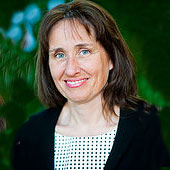
Karen Eshraghi
Karen Eshraghi, MSW, received her Bachelor’s in Social Work from Spalding University and her Master’s in Social Work from Temple University. She draws on her extensive background in preference-based living from both a quality improvement and research perspective to provide practical guidance on the benefits of implementing the Preferences for Everyday Living Inventory (PELI) across care settings. Over the last decade, Karen has been involved in numerous projects to advance the evidence base of the PELI for honoring resident preferences through care delivery processes. Currently, Karen is the Director of Grants and Research for Abramson Senior Care in North Wales, PA She also collaborates with Scripps Gerontology Center at Miami University and Penn State College of Nursing to advance the science of person-centered systems of care. She was a contributing author on multiple publications related to person-centered care and has provided numerous presentations on this topic.
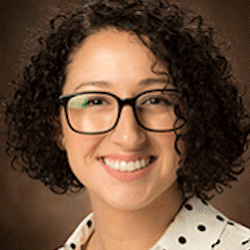
Alex Heppner
Alex Heppner received her Bachelor’s in Social Work from Bradley University. With almost a decade of direct practice experience, Ms. Heppner has experience with care planning process in both long-term care and adult day program settings. Alex Heppner is currently the Project Manager for the PELI-Can Project to support providers in implementing the Preferences for Everyday Living Inventory (PELI). She communicates with nursing home providers to identify barriers and facilitators of PELI implementation and manages the project’s “helpline” to respond to provider inquiries. Alex is the lead trainer of providers across the country for the PAL Card and Individualized Positive Psychosocial Intervention Quality Improvement Projects. She assists with the development of training videos and tip sheets to aid providers.
| FRIDAY, JULY 29 • SESSION C • 8:00 AM – 9:00 AM |
CLICK TO VIEW
 C1
C1
Creative Online Learning Methods
John Hobday, CEO and Founder of HealthCare Interactive
Anna Ortigara, RN, MS, Gerontological Nurse Specialist
This session will explore creative methods of online learning, both synchronous and a-synchronous modes. As organizations depend more heavily on online learning, now is the time to consider how to support adult learning and sustained cultural transformation by thoughtfully balancing in person and online experiences. How can you maximize established online programs and where do you need to create your own content? How can you make online and in-person training more engaging and interesting? Have you even thought about building your own online training content for your organization? This session will give you many ideas and strategies.
Bios:
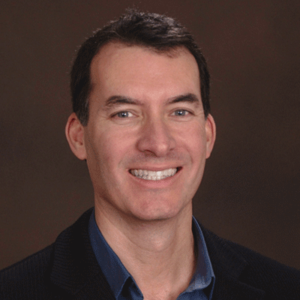
John Hobday
John Hobday is the CEO and Founder of HealthCare Interactive, Inc., a tech company headquartered in the Minneapolis area and dedicated to providing the highest quality caregiver training for Alzheimer’s disease, dementia, and other brain disorders. He is an educational and instructional design expert, software developer, and dementia researcher.
Mr. Hobday is the creator and developer of the CARES® online training, certification, and credentialing programs, all of which include the CARES® five-step method to dementia care. CARES programs are widely published in academic literature and are recommended by Alzheimer’s Association, American Health Care Association, and National Center for Assisted Living.
Since founding HCI in 1997, Mr. Hobday has also felt the impact of dementia personally. Both of his grandmothers and his aunt have had Alzheimer’s disease, and his mother is currently declining. This has resulted in a personal commitment to improve the quality of dementia care around the country.

Anna Ortigara
Anna Ortigara currently is an independent contractor serving as an educator, curriculum developer and consultant with PHI and other aging services organizations. With PHI, she was Organization Development and Workforce Consultant with the Workforce Innovations Team for the past seven years where she has taught Coaching Approach to Supervision to leadership of LTC organizations and supports organizations to implement Person-directed Living.
Previous work was in the fields of gerontology and long-term care for more than four decades. After beginning her career as a registered nurse, Anna has since gone on to work with elders in a variety of settings, including nursing homes, assisted living, adult day services, and home care settings. She was inducted as a fellow of the American Academy of Nursing, the primary author of LEAP for the 21st Century LTC Workforce, the VP of Cultural Transformation for Leading Age, Illinois, Director of Residential Care Services for the Rush Alzheimer’s Disease Center in Chicago and Associate Director of Long Term Care Accreditation at Joint Commission. Anna spent six years at THE GREEN HOUSE® Project, where she was the Director of Program Development and worked closely with PHI to adapt their coaching model for The Green House Project. She frequently presents at national and international conferences on long term care topics including: culture change, quality Jobs, recruitment and retention of staff, clinical aging topics. and person-centered dementia care, aging in America. Anna received her Master of Science in Nursing at Northern Illinois University and her BSN from St Xavier College in Chicago. She was named a Leader of Tomorrow by Long Term Living in 2014.
C2
Communicating for Policy Innovation
Ann McLaughlin, Project Coach, The Green House Project
Alex Spanko, Director of Communications and Marketing, The Green House Project
Certain change requires policy change. And if we want to see that change, we must know how to advocate for it. While advocacy is something everyone can do, it can be a daunting task to begin.
This session, led by a former journalist and former Congressional Fellow, is designed to enable participants to confidently communicate with policy makers and to advocate for their organization’s needs. Participants will receive a crash course on the policy making process in order to better understand where to enter the policy making discussion. Messaging tips will be shared along with specifics to keep in mind when interacting with government agency staff versus elected officials versus elected officials’ staff.
Bios:
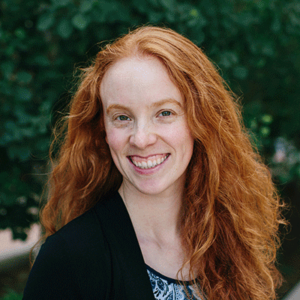
Ann McLaughlin
Ann McLaughlin is a Project Coach for The Green House Project where she leads the organization’s public policy efforts and assists with new Green House developments.
Following graduate training in music, Ann was a harpist-in-residence for a senior living community, where she performed frequently for residents and participated in community life. The experience changed her career, sending her back to school for a master’s degree in healthcare administration and a nursing home administrators license.
Improving quality of life is Ann’s passion. She has been a research assistant on projects studying racial/ethnic disparities in quality of and access to long-term care. These projects were sponsored by the National Institute on Aging and the Minnesota Department of Human Services. During her year as a Health and Aging Policy Fellow, Ann worked as a Congressional Fellow in the U.S. House of Representatives, developing aging-related legislation for the personal office of a member of Congress and advising the office’s staff on health issues.
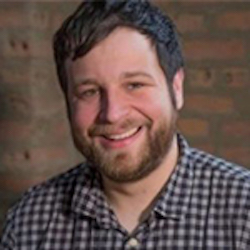
Alex Spanko
Alex Spanko is an experienced writer and editor who helped launch Skilled Nursing News (SNN), a leading industry trade publication based in Chicago, in 2017. At SNN, he developed a deep and broad knowledge of nursing home finance, reimbursement, and regulation. Alex’s work has also appeared in the Boston Globe and the Boston Business Journal.
C3
The Beautiful Landscape of DEI (Diversity, Equity, and Inclusivity) in Skilled Nursing Homes
Hope Carwile, BA, LCSW, CCTP, 200 Yoga Teacher Training, Certified Clinical Trauma Professional
Danielle Wade, Clinical Liaison, Vivage Senior Living
We have so much to learn from Nursing Homes. They offer us a glimpse into how diverse communities can navigate day to day, together, while finding meaning, purpose and a better understanding of each other. This, however, does not mean that nursing homes have mastered the understanding of diversity, equity and inclusivity or what the cumulative effects of discrimination are on vulnerable residents and employees. The DEI journey is not something to master, it’s a way of living, exploring, learning, growing, becoming more self-aware, taking peaceful action and aligns perfectly with the work we do in culture change, person-directed care and trauma informed care. When George Floyd was murdered in 2020, a member of the Vivage and Wellage Senior Living family asked, “what are we doing to bring more awareness to isms and biases which plaque our society?” It was the start of a very rough, but exquisitely beautiful journey of inquiry and action. We have experienced education from The Equity Project, Project Visibility with SAGE along with several other trainings. In addition, we have created a company DEI Committee which meets on a regular basis to identify our own biases, shared and unshared experiences, highlight company needs, and take action on those needs. We look forward to sharing with the audience our journey so far as well as how we hope to continue to learn and grow.
Bios:

Hope Carwile
Hope Carwile has approximately 20 years of experience in healthcare, primarily in long-term care senior living settings. She is committed to person-directed strength-based approaches, improving the quality of life for individuals living with dis-ease and for the care partners supporting them. Presently, Hope serves on the Skilled Nursing Innovations Grant Board, as 1st Vice President of the Colorado Culture Change Coalition, Co-Chair of the Value Added Action Group for the Direct Care Workforce Collaborative, Co- Chair of the Colorado Long Term Care Community Ethics Committee and Co-Chair of the Vivage and Wellage DEI Committee. Hope is an educator in Eden Alternative Associate Training, Green House CORE, Integrative Wellness including Complementary and Alternative Medicines, and Trauma Informed Care. She is also a facilitator of Chair Yoga and the Virtual Dementia Tour. Hope also practices Therapeutic Touch and Emotional Freedom Techniques with residents and care partners in Nursing Homes. Building trusting relationships, creating safe comfortable moments where healthy risk can take place, and exploring better ways to navigate modern day health care challenges are at the core of Hope’s work.
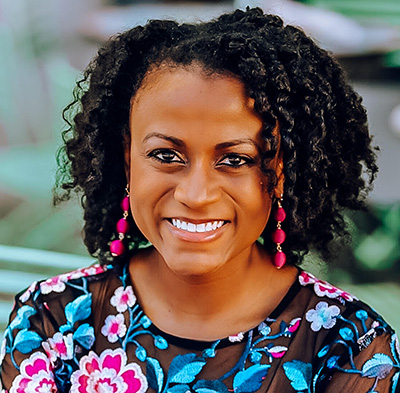
Danielle Wade
Danielle Wade is a licensed clinical social worker who obtained her Bachelor of Science in Psychology at the University of Evansville, and Master of Arts in Social Work at The University of Chicago with a clinical concentration and children and families specialization. Her current practice specialties include mental and behavioral health, senior support services, and hospital care management. Danielle is currently a clinical liaison based in the Denver Metro area. In her role, Danielle assists medical professionals, and guides individuals and families, in transitioning medically complex patients from acute care hospitals into skilled nursing and other care settings throughout Colorado. She also advocates for infertility awareness, support, coverage, and access to services via social media platforms and national organizations.
C4
Larimer County’s CO-PEER Program: Empowering Elders Within Their Community
Kara Marang, Long-Term Care Ombudsman, Colorado Office on Aging
Elizabeth Piesman, Long-Term Care Ombudsman, Colorado Office on Aging
The Colorado Prepared Empowered Expert Residents (CO-PEER) program is designed to empower elders living in assisted living and nursing homes to advocate for themselves and their fellow residents. The Guides will provide information about the program and provide guidance on starting a CO-PEER program in other regions of Colorado and in other states.
Bios:
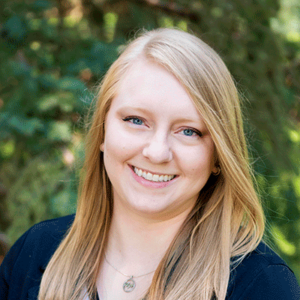
Kara Marang
Kara Marang started working with the Office on Aging as a Long-Term Care Ombudsman in July of 2021. Prior to this, she was a Case Manager with Options for Long Term Care in Larimer County. As a LTC Ombudsman, she advocates for the rights of residents of assisted living and nursing homes. She also works closely with the community’s staff to identify issues within the homes and to resolve conflicts productively. Through her work in this position, Kara aims to support residents in living with dignity, making their own choices, and participating fully in their communities.
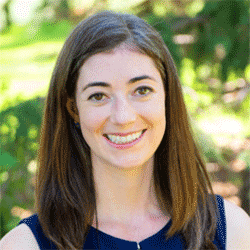
Elizabeth Piesman
Elizabeth Piesman began working for the Office on Aging as an Information and Assistance Specialist in October of 2015. In October of 2018, she transitioned to the role of Long-Term Care Ombudsman. In her current position as a resident advocate for those who reside in long term care communities in Larimer County, Eliza works to resolve resident concerns through advocacy, education, and empowerment. She ensures residents’ rights are upheld and regulations are being followed by engaging with residents, staff, and families in creative problem solving. She provides assistance to assure that residents can express their voice, participate in their community, and receive person centered care.
C5
Get the Secret Sauce to Dementia & Dining
Toni Fisk, Certified Dietary Manager, Certified Montessori Dementia Care Professional
How dementia can affect the dining experience as it relates to the socialization and the action of eating in your dining space, will be covered followed by the service standards and environmental aspects of the physical dining space. Best practice recommendations will be provided for the standard dining model and what considerations and actions should be undertaken for service enhancement, improved food consumption, hydration, and dining with dignity.
Bio:
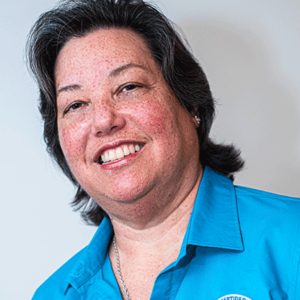
Toni Fisk
Toni Fisk is the published author of the 2021 Amazon #1 Bestseller “#dinewithdignity Unlocking the Mystery of Dementia and Dining.” In addition to several professional publications, she has been engaged in the food & hospitality industry for over 35 years beginning at Walt Disney World/EPCOT Center and Marriott Hotels before transitioning to Healthcare and Senior Living. Toni’s daily operational engagement at Senior Living Communities across the United States stoked a concern regarding the care, training and tools that were accessible to all the pillars of support services who were caring for our Elders, particularly those living with dementia.
Toni is a professional speaker, with multiple dementia certifications as educator and trainer, working with professional care partners and family members. She is also a Certified Dietary Manager and a senior living dining operations consultant and has a deep commitment towards education and enlightenment in the care for persons living with dementia.
C6
Creating the Companion Volunteer: Recognizing a Critical Role for Volunteers
Dr. Paul Falkowski, VolunCheerLeader
Long before COVID-19, professionals working in long-term care knew about the devastating effects of social isolation. Because of COVID-19, social isolation has become an all too familiar experience. Creating intimate relationships takes time and commitment. In this session, you will learn the critical components for creating “authentic” relationships. You will learn how to create a cadre of volunteers, who go on to become “companions,” or as one woman said, “Someone that is here just for me.”
Bio:
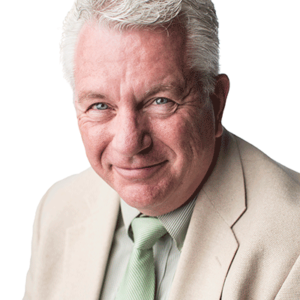
Paul Falkowski
Dr. Paul Falkowski is an advocate for expanding the role of volunteers in nursing homes. He has trained and placed hundreds of volunteers in nursing homes using state-of-the-art training techniques and online training that is available worldwide. His vision is for creating “companion” volunteers whose sole mission is to develop meaningful relationships with people living in nursing homes. He earned his Doctorate in Gerontology at the University of Nebraska. His dissertation “Volunteer Programming Impact on Long-Term Care Facilities” is available online and has been downloaded nearly 5,000 times and cited in various journal articles. In addition, his book, “Creating the Volun-Cheer Force: Rethinking the Way We Use Volunteers in Long-term Care,” is recognized by leaders in volunteer management as one of the best.
C7
Music with Technology: Rebooting Human Connections
Abigail D’Arcangelis, Music Therapist, Shenandoah Valley Westminster-Canterbury
During the pandemic, one community discovered music with technology to cross barriers, maintain connections and change the culture of aging. With the community’s music therapist and individuals living across the care continuum, attendees will experience campus music videos, intergenerational musical pen pals, an audio-biographical legacy project, community song-writing, and re-imagined telehealth. Leave the session knowing the value of music with various technologies and how to implement them in your own work.
Bio:
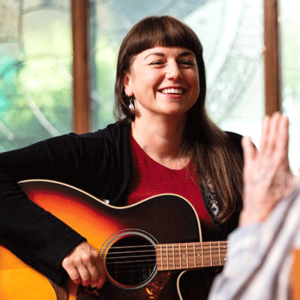
Abigail D’Arcangelis
Abigail D’Arcangelis is the founding music therapist at Shenandoah Valley Westminster-Canterbury. She provides individual and group music therapy services in all levels of living, oversees the national music therapy internship program, supervises university music therapy practicum students and is co-leader of the Interdisciplinary Dementia Inclusive Committee. Abigail is a frequent guest-lecturer at Shenandoah University and has presented at conferences for the American Music Therapy Association, Pioneer Network and Leading Age Virginia. In addition to her Board Certification in music therapy, Abigail is a Fellow of Neurologic Music Therapy and a certified Hospice and Palliative Care Music Therapist.
C8
Making Life Meaningful at the End-of-Life
Staci G. Hannah, Aging Navigator, and Founder of Graceful Journey Atlanta
In this presentation, Staci will bring awareness and knowledge about what it is to have a meaningful end-of-life. As a country, we do not embrace talking about the end-of-life, like we talk about sex, drugs, and rock n’roll. Participants will be taught how to use conversation starters when talking about death and dying. If society begins to normalize our conversations about our wants, wishes, and worries at the end of life, we would be able to die in more peaceful and nurturing environments. Attendees will learn about their rights when working with hospice that will allow them to feel empowered when navigating this journey. These insights will help care partners manage their expectations and improve communication between the family, care staff, and hospice. The goal of the session is for participants to leave more informed, aware, and skillful in helping their loved ones and others navigate the end-of-life journey.
Bio:
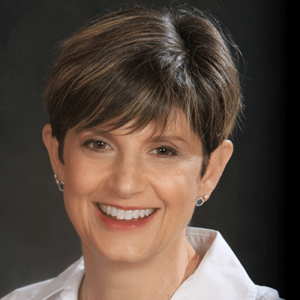
Staci Hannah
Staci G. Hannah is founder of Graceful Journey Atlanta. She is an Aging Navigator, independent consultant with Teepa Snow, certified Positive Approach to Care trainer, coach, and advanced consultant, graduate of the Rosalyn Carter Institute of Caregiving, and trained End-of-Life Doula. She aims to make her clients aware and increase their knowledge from the time of their terminal diagnosis until the end-of-life transition. Staci teaches and coaches professional and family care partners on brain changes, meaningful engagement, and person-directed care. As an End-of-Life Doula, she empowers her clients to work with hospice, and to effectively advocate for them, when they no longer have a voice.
C9
Behaviors vs Unmet Needs: to Control or Understand?
Ruth Minnema, Director of Nursing Services, Education, Shalom Park, Aurora, CO
Substituting “unmet needs” for “behaviors” is more than a wording change. Using unmet needs concepts directly supports Pioneer Network’s conference objective of providing practical knowledge and tools to re-affirm foundational culture change practices. The Alzheimer’s Association’s “Understanding and Responding to Dementia-related Behaviors” education describes steps that can help families and communities manage dementia. Combining Eden Principles and Domains of Well-being with the Alzheimer’s Association’s approach will be presented during this session. Care Partner and Elder stories will illustrate how neighborhood learning circles to address unmet needs provide insight and enhance relationships. Understanding unmet needs is applicable in many settings, including families, faith communities, and anywhere we meet people with dementia who act in ways we do not understand.
Bio:
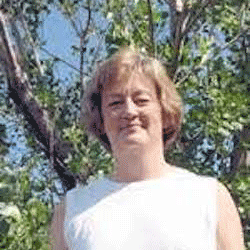
Ruth Minnema
For the past 35 plus years, Ruth Minnema has served in a variety of long-term care leadership and board member positions. As a high school senior and nurse aid in Kalamazoo Michigan, she passed medications at a nearby nursing home and made her first medication error (attendees will hear about it during the presentation.) 14 years later, Ruth became an RN and again passed medications in nursing homes. She’s been fortunate to learn from Elders there is much more to nursing homes than medications and regulations. Elders continue to teach her the importance of relationships that promote growth, especially during COVID.
C10
The Transformative Benefits of Age/Dementia Friendly Reading: From Skilled Nursing to Traditional Homes
Susan Ostrowski, M.A, M.S., CCC-SLP, President, Reading2Connect
Ephraam Price, Life Enrichment Director
In this hands-on session, participants will learn how they can help support the joy of reading for individuals living with dementia. Attendees will practice modifying articles to become dementia friendly and will analyze videos of residents independently reading. Attendees will view resident-directed, peer reading groups that do not require staff direction. Residents will share the impact of accessible books on their wellbeing. Attendees will further witness the positive impact of accessible reading on diversity and inclusion for residents/staff, employee job satisfaction, alliances with the broader community, and census-building.
Bios:
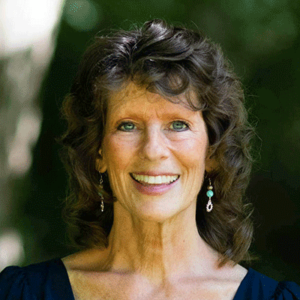
Susan Ostrowski
Susan Ostrowski holds a Master’s Degree in Remedial Reading and a Master’s Degree in Speech Pathology, Columbia University, New York City. She has an array of senior care experience, from skilled nursing to traditional homes. With deep concern for the unmet social and emotional needs of older adults and a passion for innovation, Susan developed an organization called Reading2Connect® which is devoted to bringing back the joy of reading to adults living with dementia. This is done through age/dementia friendly books and by providing education to staff/partners on techniques to foster independent, leisurely reading for adults in all settings. Susan has contributed to multiple publications, including the American Speech and Hearing Association Perspectives Journal and the Thieme Medical Publishers Communication Sciences Case Study textbook. Susan has received several national recognitions, including Mather Institute “Promising Practices,” Beryl Institute Patient Experience Grant, Dementia Society of America SMART Award, and the American Speech and Hearing Association Recent Clinical Achievement Award.
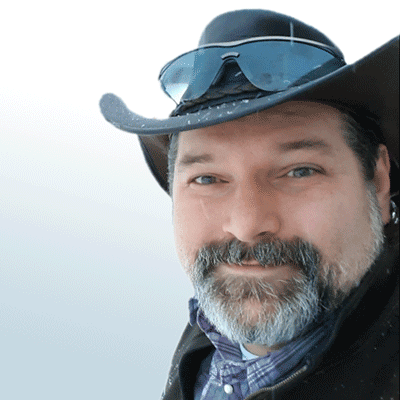
Ephraam Price
Ephraam Price has spent over three years in LTC and over 20 years in public relations. As a Life Enrichment Director, he works with elders on a variety of topics such as, their mobility, transportation, personal care, nutrition, mental and spiritual health, and communication with family and friends, and fighting against loneliness, boredom, and helplessness. All of which are vital functions in the elders daily life to have meaningful days.
| FRIDAY, JULY 29 • SESSION D • 9:15 AM – 11:15 AM |
CLICK TO VIEW
 D1
D1
Today’s Learners and the Adult Learning Model
Carrie Chiusano, Executive Director for the Presbyterian SeniorCare Network Dementia Care Center of Excellence
Anna Ortigara, RN, MS, Gerontological Nurse Specialist
Adult learners have specific needs and desires when they engage in a learning experience. They come to the experience as experienced and knowledgeable individuals with a broad range of life experience to inform them. They respond best when they are active participants in the educational endeavor. At the same time, curriculum can be constructed to support the adult learner cycle: experience, reflection, application, and generalization. This readies the person to apply the learning to their everyday practice. For the educator, this session will look at creative and fun teaching methodologies applied to Pioneer Network values. And finally, we will explore the qualities of a transformational educator to align with your organizational transformation.
Bios
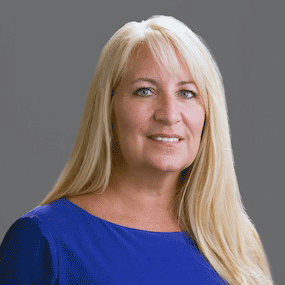
Carrie Chiusano
Carrie Chiusano has 30 plus years of long-term care experience with Presbyterian SeniorCare Network, most of which were spent helping to shape and implement the Woodside Place philosophy of specialty care for persons living with Alzheimer’s disease and related dementias. Prior to being appointed Executive Director for the Presbyterian SeniorCare Network Dementia Care Center of Excellence in January 2016, Carrie served for five years as the Administrator for Woodside Place of Oakmont, which opened in 1991 and was one of the nation’s first dementia-specific residential community designed to meet the holistic needs of older adults living with Alzheimer’s and related dementias. She was instrumental in championing the Culture Change initiative for the Network, which led to the organization becoming CARF accredited in Person Centered Care in 2011.
As Executive Director, Carrie is responsible for the integration of dementia care services across the various settings that comprise the Network. This includes spearheading dementia care program development to maintain state-of-the-art programming uniformly across campuses. It also includes planning and implementing ongoing educational programs that ensure that every team member at every level of the organization has the understanding and competencies to meet the holistic needs of persons living with Alzheimer’s and related dementia. Carrie is responsible for building and maintaining strategic partnerships that can support the Network in its goal of enhancing the quality of life both for the individuals impacted by the disease as well as the family caregivers coping with the disease.
Carrie serves as the Champion for the Dementia Care Strategic Committee, spearheads the Network’s Dementia Care Network Integration team, and led the Network-wide effort to become CARF accredited in 2016 in Dementia Care. In addition to her service on numerous, industry association boards, Carrie is a certified trainer for the National Council of Certified Dementia Practitioners in dementia care.

Anna Ortigara
Anna Ortigara currently is an independent contractor serving as an educator, curriculum developer and consultant with PHI and other aging services organizations. With PHI, she was Organization Development and Workforce Consultant with the Workforce Innovations Team for the past seven years where she has taught Coaching Approach to Supervision to leadership of LTC organizations and supports organizations to implement Person-directed Living.
Previous work was in the fields of gerontology and long-term care for more than four decades. After beginning her career as a registered nurse, Anna has since gone on to work with elders in a variety of settings, including nursing homes, assisted living, adult day services, and home care settings. She was inducted as a fellow of the American Academy of Nursing, the primary author of LEAP for the 21st Century LTC Workforce, the VP of Cultural Transformation for Leading Age, Illinois, Director of Residential Care Services for the Rush Alzheimer’s Disease Center in Chicago and Associate Director of Long Term Care Accreditation at Joint Commission. Anna spent six years at THE GREEN HOUSE® Project, where she was the Director of Program Development and worked closely with PHI to adapt their coaching model for The Green House Project. She frequently presents at national and international conferences on long term care topics including: culture change, quality Jobs, recruitment and retention of staff, clinical aging topics. and person-centered dementia care, aging in America. Anna received her Master of Science in Nursing at Northern Illinois University and her BSN from St Xavier College in Chicago. She was named a Leader of Tomorrow by Long Term Living in 2014.
D2
Using Impathy® to Create Change
Phyllis Ayman, MS/SLP, CDP, CADDCT, CDCM, CMDCP, Ambassador for Aging Life Management, Author, Speaker, Podcaster, Catalyst for Change
Creating caregivers and staff who can sustain their own psychological and emotional well-being can go a long way in helping residents counteract feelings of loneliness, elevate mood, and promote positivity, especially relevant as we transition from the pandemic and beyond. The skills and techniques not only change one’s own outlook but can change the nature of our interactions, helping to forge better relationships, with colleagues as well as residents.
Person-centered caring is more than caring for residents. It begins with caring for ourselves. As caregivers, we sometimes forget that. Person-centered caring is about people, and before one can expect true person-centered caring to be delivered to residents, leadership must begin to practice person-centered caring for their staff. One way to accomplish that is through programs that encourage staff to adopt strategies for their own self-care.
Self-care strategies can be simple and take only a few minutes. It’s a matter of committing to them and strategizing to incorporate them into our daily routine.
The IMPathy ® framework provides strategies for individuals as instruments of change in an environment whose responsibility it is serve the needs of others.
Bio:
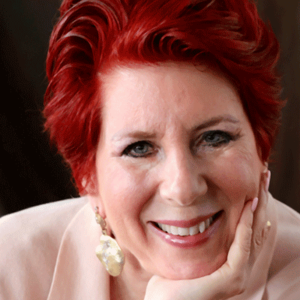
Phyllis Ayman
Phyllis Ayman, an Ambassador for Aging Life Management, is an author, speech/language pathologist and dementia trainer who has worked with thousands of families and nursing home residents. She’s a staunch advocate and outspoken proponent for dignity, respect, quality care and quality life for Our Elder Citizens. Her books: Dignity & Respect: Are Our Aging Parents Getting What They Deserve and OVERDUE: Quality Care for Our Elder Citizens became #1 Amazon Best Sellers. As an eldercare advocate, she prepares families to become more effective advocates by providing valuable information from the perspective after working in 50+ nursing homes. Phyllis is a featured speaker and trainer on a variety of topics for the public and private sector. She holds 2 trademarks, has several published articles to her credit, and her work has been featured in major media outlets. She launched her blog: The SeniorScape ™ in December of 2021. Phyllis is known for her communication skills, high care standards, and empathy.
Phyllis hosts the podcast: SeniorsSTRAIGHTTalk on the Voice America Empowerment Channel and syndicated on the Voice America Influencers Channel and can be found on favorite podcast platforms. Phyllis is an advisory board member for the non- profit Youth Engaging Seniors (Y.E.S.)
D3
Living Dementia with Purpose
Jytte Lokvig, Founder and Facilitator, National Alzheimer’s Cafe Alliance
Susan Balkman, Advocate
What if it was you who had just gone through exhaustive tests and been diagnosed with dementia, probably of the Alzheimer’s type? You had likely suspected this, and yet it’s almost always devastating to hear it as an established fact. Who is there to help guide you as you learn to live in this new reality? Perhaps you asked the doctor, only to be advised to “go home and get your papers in order.” But there are still many more years ahead for you. You need help – you need purpose! You need a reason to get up in the morning.
In this session, we’ll look at life from the point of view of the individual living with dementia. We’ll explore how to find purpose, not only for those individuals living with dementia, but for their care partners. All need to have a sense of still being able to contribute, experiment, discover, and yes – learn.
Bio:

Susan Balkman
Since being diagnosed with Alzheimer’s Disease, Susan Balkman has learned that having a sense of purpose with dementia means not giving up and having something to look forward to.
According to Susan, when she received the diagnosis of dementia and was given no guidance except to go home and get her papers in order, it took her breath away. She was young. What would she do with herself for the next two or more decades? Had she not met Jytte Lokvig she would have lost her ability to, as she would say, Live out loud with dementia. Jytte asked Susan what she loved to do and since then her life has opened up again because of her work with clay.
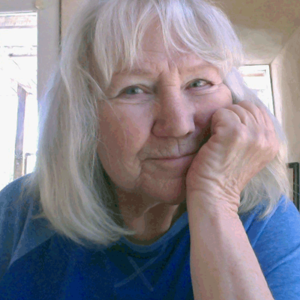
Jytte Lokvig
Jytte Lokvig grew up in Copenhagen, Denmark. After coming to this country as a young adult, she attended the Art Center College of Design in Los Angeles and later earned her degrees at Antioch College West, California State University at Los Angeles, and California Pacific University.
Since 1994, Jytte Lokvig has worked with older adults, especially those with Alzheimer’s disease and related dementia. She coaches families and professional caregivers and designs life-enrichment programs and activities for care homes. Her workshops and seminars explore utilizing attitude and communication to promote a healthy environment based on dignity and humor.
In her teaching, writing and modeling, Jytte Lokvig throws a lifeline to the caregiver. Her caregiving models bring about dramatic changes in the mental state and quality of life of the person living with dementia. When the life of this individual improves, the lives of everyone else involved will also improve.
Lokvig’s first book Alzheimer’s A to Z, Secrets to Successful Caregiving, which at the time in 2002 offered carers the first down-to- earth practical advice on numerous situations typically encountered by caregivers. She has published another four books on the topic since then.
D4
An Introduction to Humanitude® Care
João Partel Araujo, BSc (Nursing), Dementia Care Specialization, MSc (Healthcare Management), MBA (Social Ecomony), General Psychiatric Management post graduation
Franck De Vivie, Director of Institute Gineste-Marescotti International
Joanne Rader, Co-Founder of Pioneer Network, Consultant
The Gineste-Marescotti® Care Methodology, also known as Humanitude® is a multimodal care methodology for any vulnerable dependent person, such as those living with dementia, post-stroke dependency, physical or mental disabilities, etc. Humanitude comprises of more than 150 care techniques based on four pillars: gaze, speech, touch and verticality. It is the only care methodology that professionalizes the relationship between caregiver and care receiver.
In this workshop the participants will be introduced to the Humanitude Philosophy of Care, gain an understanding of the impact of Humanitude on Quality of Life, and learn the basic Humanitude tools – what they are and how to implement them.
Bios:
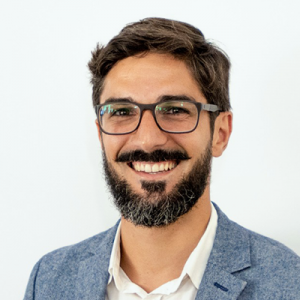
João Pärtel Araújo
João Pärtel Araújo’s mission is to bring joy into caregiving, regardless of setting and role, believing that life and happiness belong in healthcare. In 2006, his grandfather was diagnosed with vascular dementia, and that made him dedicate his life to geriatric and frail people care, searching for best caregiving practices to promote welfare and quality of life. João began as a caregiver, a nurse, a clinician, later becoming a healthcare director, and is now working as a trainer and a consultant.
Traveling worldwide to train, empower and inspire healthcare professionals, families, and people with chronic health conditions, João is actively working to change the lives of hundreds of people with a relational approach to care. He has worked with Humanitude since 2010, the methodology of care developed by Yves Gineste and Rosette Marescotti, that he personally learned from them, achieving the certification of Humanitude instructor in 2016. He is currently the International Pedagogical Coordinator for Humanitude implementing this evidence-based methodology of care in Europe, Asia and America.
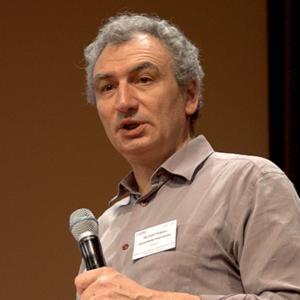
Franck De Vivie
Franck De Vivie has a Master’s degree in Management (1989 GEM – Grenoble Ecole de Management). He worked for 20 years for a European food packaging group from 1992 until 2012 developing management skills at an international level. In 2007, he was appointed VP Sales for the group. It was through his wife, Annie de VIVIE, that he became involved with Humanitude. Annie has been in charge of the Humanitude network in France since 2004, and through her, Franck had the opportunity to meet Rosette Marescotti and Yves Gineste on several occasions. In 2013, they offered him the opportunity to join the Humanitude’s network and bring his experience to develop it internationally. Humanitude network is growing thanks to encounters with people sharing the same values in countries like Belgium, Italy, Spain, Japan, Korea, Singapore and the USA.

Joanne Radar
Joanne Rader is a recognized expert in the LTC culture change movement. She has published numerous articles and books addressing the emotional needs and behavioral expressions of distrress of persons living with dementia including Individualized Dementia Care: Creative, Compassionate Approaches, and Bathing Without a Battle which received AJN Book of the Year awards in 1996 and 2002. Joanne has spoken extensively throughout the country and is probably best known for her work on the development of the program, Bathing Without a Battle. Joanne is one of the Co-Founders of Pioneer Network and a strong supporter of the Humanitude philosophy and approach to care and caregivers.
D5
Join Us in Boldly Advocating for How and Where We Age: The Live Oak Project
Barry Barkan, Co-Founder Live Oak Regenerative Community, Co-Founder Pioneer Network
Rose Marie Fagan, Co-Founder and Founding/Former Executive Director, Pioneer Network and Steering Committee, Culture Change Network of Georgia
Jeff Jerebker, Former President Pinon Management
The Live Oak Project responded to catastrophic deaths in nursing homes by launching a national movement to Reimagine, Redesign and Transform long-term services and support systems for elders and people living with disabilities so that each person can thrive. In this session, we will inspire hope that this transformation can become reality, beginning with the setting in which you live or work. We will focus on 3 areas crucial to transformation: staffing, architecture, and culture. We will discuss specific skills for becoming a change agent, and how you can get involved in the Live Oak Project.
Bios:
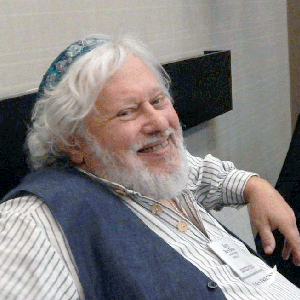
Barry Barkan
Barry Barkan is a co-founder of Pioneer Network. In 1985 he co-founded The Live Oak Regenerative Community as a model to transform patients to elders, empowering them in the management of the home and in the wider community. Barry also co-founded the Elders’ Guild to engage emerging Elders in a culture that promotes community, deepening wisdom, and championing the future.
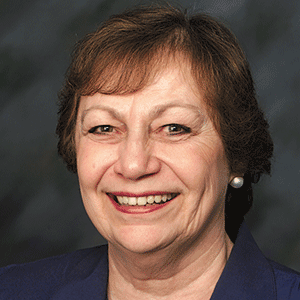
Rose Marie Fagan
Rose Marie Fagan is a co-founder and the founding Executive Director of Pioneer Network. She coordinated the seminal meeting of Pioneers in 1997 in Rochester, NY and co-authored a widely disseminated final report of that historic occasion. In 2016, Rose Marie moved to Georgia where she is an active member of the Culture Change Network of Georgia. She is currently contracted by Georgia State University, Atlanta, GA to be a consultant for a three-year CMS funded grant to bring culture change to GA nursing homes: Building Resources for Person-Centered Care in Georgia Nursing Homes.
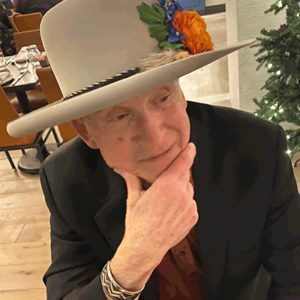
Jeff Jerebker
Jeff Jerebker is the former President of Pinon Management in Colorado, Co-founder of the Live Oak Project and Colorado Culture Change Coalition, past treasurer of Pioneer Network and board member for The Eden Alternative and Colorado Health Care Association. Under Jeff’s strong leadership, Pinon Management built a culture that empowered each person and helped redefine what is possible in Culture Change. He continues to work to influence Elder Care in this country through his blog and as author of several books including Oh Mercy! The Coming of Age of a Nursing Home Pioneer.
D6
Reconceptualizing “Surplus” Safety in Nursing Homes / Decision-making In aGing and demeNtIa for auTonomY (DIGNITY) Program
Liza Behrens, PhD, RN, Assistant Professor, Penn State Ross and Carol Nese College of Nursing
Susan Ryan, RN, Senior Director, The Green House Project
Dignity is an essential characteristic of being human and is related to a sense of well-being in older adulthood. Dignity of risk is the principle of allowing the dignity afforded by risk-taking, with subsequent enhancement of personal growth and quality of life. Positive risk-taking improves autonomy, social interaction, and elements of both physical and mental health. On the other hand, over-protection or “surplus safety” has the opposite effect, diminishing a person and removing hope. Knowing and honoring residents’ preferences for social activities has been difficult for most nursing home communities during the COVID pandemic. This session invites you to be an active participant in research that will contribute to the development of an evidence-based practice on person-centered risk management. We will focus on your experiences with honoring residents’ preferences, where you have been challenged. We will propose and practice strategies for balancing dignified risk-taking and safety for older adults (including those with dementia) living in your nursing home community.
Bios:
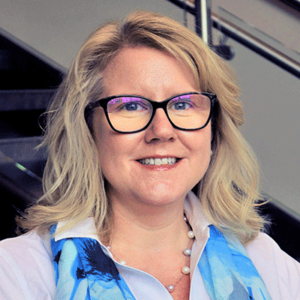
Liza Behrens
Dr. Behrens is an Assistant Professor in the Ross and Carol Nese College of Nursing at Penn State. Dr. Behrens’ research interest is in the implementation of preference-based, person-centered care in nursing homes to improve the physical and psychological well-being of residents living with dementia. Her work explores how risk perceptions of nursing home staff, family, and residents influence decision-making around honoring residents’ preferences for activities of daily living and care.
Dr. Behrens has more than 20 years of progressive experience providing nursing care to older adults in multiple care settings including psychiatric and medical hospitals, out-patient clinics, nursing homes, and home-based care. She has held many leadership positions in nursing and in clinical research.
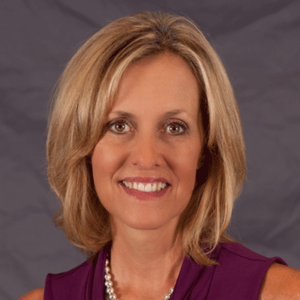
Susan Ryan
Susan Ryan serves as senior director of The Green House Project, leading the non-profit on its; mission to fundamentally transform eldercare in America and around the world. As a member of the Green House team since 2008, Ryan has become an internationally recognized leader long-term care reform – with a particular focus on the organization’s vision for small-home & eldercare communities that provide person-directed alternatives to traditional nursing homes. Throughout her 35-year career in eldercare, Susan has sought to champion the quality of life for elders in a variety of settings across the continuum of care, including the expansion of home and community based services. At The Green House Project, she works to create a future where every elder is able to access high-quality, person-directed living in the setting of their choice.
D7
Persons Living with Dementia Promoting Wellbeing Through Education and Advocacy
Brian LeBlanc, Vice President & Founder, National Council of Dementia Minds, Co-Founder #WeAreDementiaStrong
Brenda Roberts, Executive Director, National Council of Dementia Minds
Mark Roberts, Secretary & Founder, National Council of Dementia Minds
Learn firsthand from persons living with dementia. This session will be kicked off with a dramatic and humorous video presentation created by and featuring persons living with dementia. Following the video, you will have the opportunity to engage in a candid Q&A session with the presenters. They will discuss how participation in the education and advocacy activities of the National Council of Dementia Minds has positively impacted their well-being and quality of life.
Bios:

Brian LeBlanc
Brian LeBlanc, Co-Founder of #WeAreDementiaStrong, a not-for-profit, is living with Vascular Dementia and Alzheimer’s Disease. Brian made a career by using his voice and so knew he HAD to use it now to Advocate and Educate for Persons Living with Dementia and their Care Partners. He does this also to honor his mother and grandfather who died with Alzheimer’s disease. Brian is now an International Alzheimer’s Advocate, Keynote Speaker, Session Presenter and Congressional Alzheimer’s Ambassador for the Alzheimer’s Association. He speaks at international, national, regional and local conferences, seminars and workshops. Brian works tirelessly to educate individuals who are living with dementia as well as their care partners on the topic of “living well.” He is also a Crisis Intervention Team Trainer for Law Enforcement and has participated in multiple opportunities to speak to lawmakers, not only in Florida, but in Washington, DC about the value, need and importance of funding research, education, and support systems for persons living with dementia and their care partners.
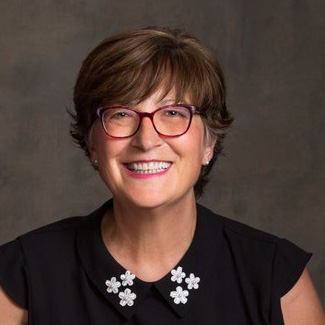
Brenda Roberts
Brenda Roberts has over 40 years of experience in the human service field working with elders and persons living with disabilities. Her passion is learning from and supporting persons living with dementia to transform the worldview of Neurocognitive Disorders. She envisions a world where all persons living with dementia experience agency, inclusion, and shared power in all aspects of private and public life. Brenda is proud to have been a part of the “original” Dementia Minds since its inception and honored to serve as the Executive Director for the National Council of Dementia Minds. Brenda is known for her optimism, enthusiasm, and boundless energy.
Brenda earned a Certificate in Advance Dementia Practices from U of M. She also holds a MA in Education Administration and Community Leadership from CMU, and BA in Sociology from Alma College. In addition, Brenda holds certifications as: Dementia Trainer, Coach, Consultant and Engagement Leader as well as a To Whom I May Concern Facilitator and Eden Associate.
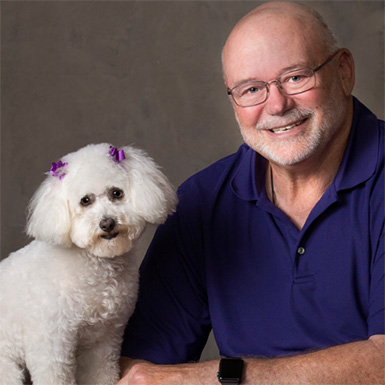
Mark Roberts and Sophie
Mark Roberts is a former Mechanical Supervisor at a private college. Throughout his life he has worked as a skilled tradesman in heating, air conditioning and construction. For decades Mark has served his church and community with active involvement on various boards of directors for non-profit and human service organizations. Today, Mark serves as a national dementia advocate and speaker. He especially enjoys being a friend and source of hope for persons newly diagnosed. Mark enjoys the great outdoors especially trout fishing in northern Michigan. His love of nature is only second to his love for his family. Mark is easy to spot in a crowd because of his constant companion and dementia service dog, Sophie. In 2014, Mark was diagnosed with Young Onset Vascular Dementia at the age of 62.
D8
Shaping the Future: Do We Really Need a Crystal Ball?
Walter O. Coffey, Founder/Managing Partner, WD International Consulting & Regional Co-Coordinator for The Eden Alternative SPAIN
G. David Sprowl, Founder/Managing Partner, WD International Consulting & Regional Co-Coordinator for The Eden Alternative SPAIN
As workshop guides, Walter and David believe we already have the answers and do not need a crystal ball, or any special psychic ability to determine what we need to do to be viable. They will share what they know and have experienced from facilitating a year-long leadership academy for 15 years. Both have been directors of senior housing communities and innovative leaders in the culture change movement. They have found that individual leadership coaching is a key element to staff development. When working one-on-one, their clients feel safe to address a variety of issues around relationships at work, supervision, stress, and burnout.
Coaching is a win-win. It is the missing link to retaining staff in the field of aging. It supports individual employees in growing, addressing on-the-job issues, and preparing themselves to be the future leaders. It makes great business sense; it is a huge savings from the cost of turnover alone.
The workshop guides will present practical ways to develop leaders including the foundational skills needed for success. This will include the case for leadership coaching and how to implement a coaching program; what coaching is and what it is not, and how it supports the organization’s training program.
To retain staff, organizations must move away from only utilizing a traditional approach to staff training and development and make the decision to invest in a more person-centered approach. Through coaching, leadership concepts and principles are anchored. During sessions, challenges that might be inhibiting individuals from achieving their full professional and/or personal goals are uncovered and addressed. Ultimately, this investment positions organizations to attract and retain the talent needed for the future.
So – do we really need a crystal ball OR do we just need a big dose of intention? Let’s do it!
Bios:
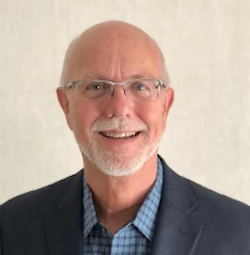
Walter Coffey
Before forming WD International, Walter Coffey was the CEO of LeadingAge Georgia and the Georgia Institute on Aging for 18 years. His career spans from Georgia Council on Aging to the Alzheimer’s Association to various senior housing settings. He is committed to the education and development of individuals with an emphasis on supporting organizations to empower and retain their staff. Walter is an international leader in the culture change movement and has the demonstrated ability to transform organizations to become person-centered. Walter is a national leader in focusing on care for people living with dementia. He is a part-time instructor in the Gerontology Institute at Georgia State University. Walter has a master’s degree in Public Administration with a concentration in Gerontology, from Georgia State University and is a Certified Eden Educator via The Eden Alternative.
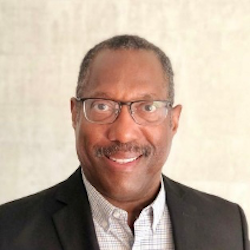
David Sprowl
Before forming WD International, David Sprowl was the Executive Director of Lutheran Towers, located in midtown Atlanta, Georgia. He led a transformative journey in developing a person-centered approach in affordable housing. His prior experience included 16 years in the corporate arena. As a certified Leadership Coach credentialed through the International Coaching Federation (ICF), David is committed to the mentoring and coaching of individuals with a focus on their professional and personal growth. As a seasoned educator, he has a demonstrated ability to connect with people from diverse backgrounds and cultures. He has a master’s degree in Public Administration with a concentration in Non-Profit Management, from Georgia State University and is a Certified Eden Educator via The Eden Alternative.
D9
Good Night Good Morning: Honoring Resident Routines
Sue Ellen Clark, Former Healthcare Administrator, Sunnyside Retirement Communities
When you think about having a good night and a good morning, you think of what is important to you. We definitely need our routines and preferences in order to set the tone for a meaningful day. For residents in traditional nursing homes, though, having a good night and a good morning, can be much more challenging. There is a definite institutional culture of routines, schedules, beliefs, and traditions that dictate the day.
Bedtime happens immediately after supper. Residents are repositioned throughout the night. Labs and medication regimes wake the resident very early in the morning. Residents are woken again to get ready for the day only to fall asleep in their wheelchair at the dining room table long before breakfast is even ready to be served. As people working in nursing homes, we do not intentionally do these things because we are bad people. It is the institutional system going back more than 80 years that we keep repeating in our work.
At Sunnyside Retirement Communities, they are eager to tell a different story of the nursing home. It starts with meaningful change that embraces the aspects of well-being/person directed living knowing that model supports normal, restful sleep, natural waking, and an enhanced breakfast. They are ardent about doing things that are important to the residents and want to share that with others as a basis of motivation for change.
Bio:
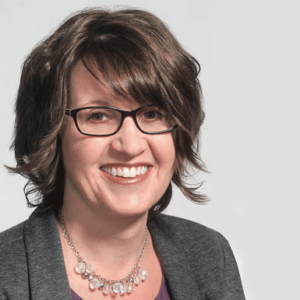
Sue Ellen Clark
Sue Ellen Clark has served the last 14 years in senior living. She started in therapeutic recreation in 2007 and moved to the role of director later that same year. In 2014, she added an MBA in Health Care Management to her list of accomplishments, and by 2017, she went on to work as a LNHA. She has a deep background in organizational change and seeks to influence senior living communities towards person directed living practices and culture change. Throughout her career, Sue Ellen has spoken countless times both locally and nationally in the areas of person directed living, coaching, therapeutic recreation, leadership, and dementia. Her personal mantra is, ‘Life is for service.’
Most recently, she served as the Health Care Administrator at Sunnyside Retirement Communities in Harrisonburg, Virginia where they have moved forward with organizational changes that enhance resident well-being in a person directed living approach including meaningful life engagement, deprescribing, flexible medication pass, and natural wakening (supporting positive night and morning resident routines).
Sue Ellen’s start in senior living included volunteering at many local nursing homes in Western New York with her family and church’s puppet ministry throughout high school and college. Her grandparents and father were the biggest influencers in her life and helped her understand and appreciate The Greatest Generation.

